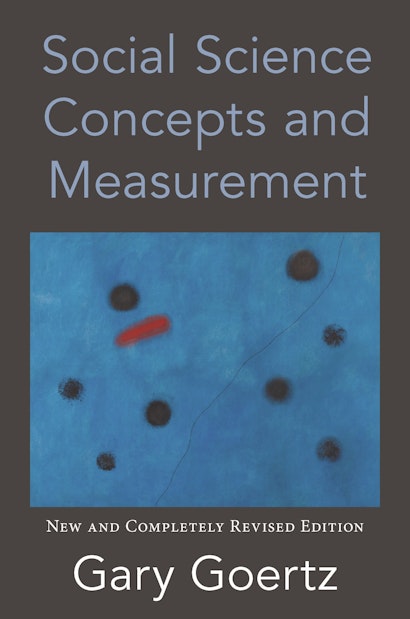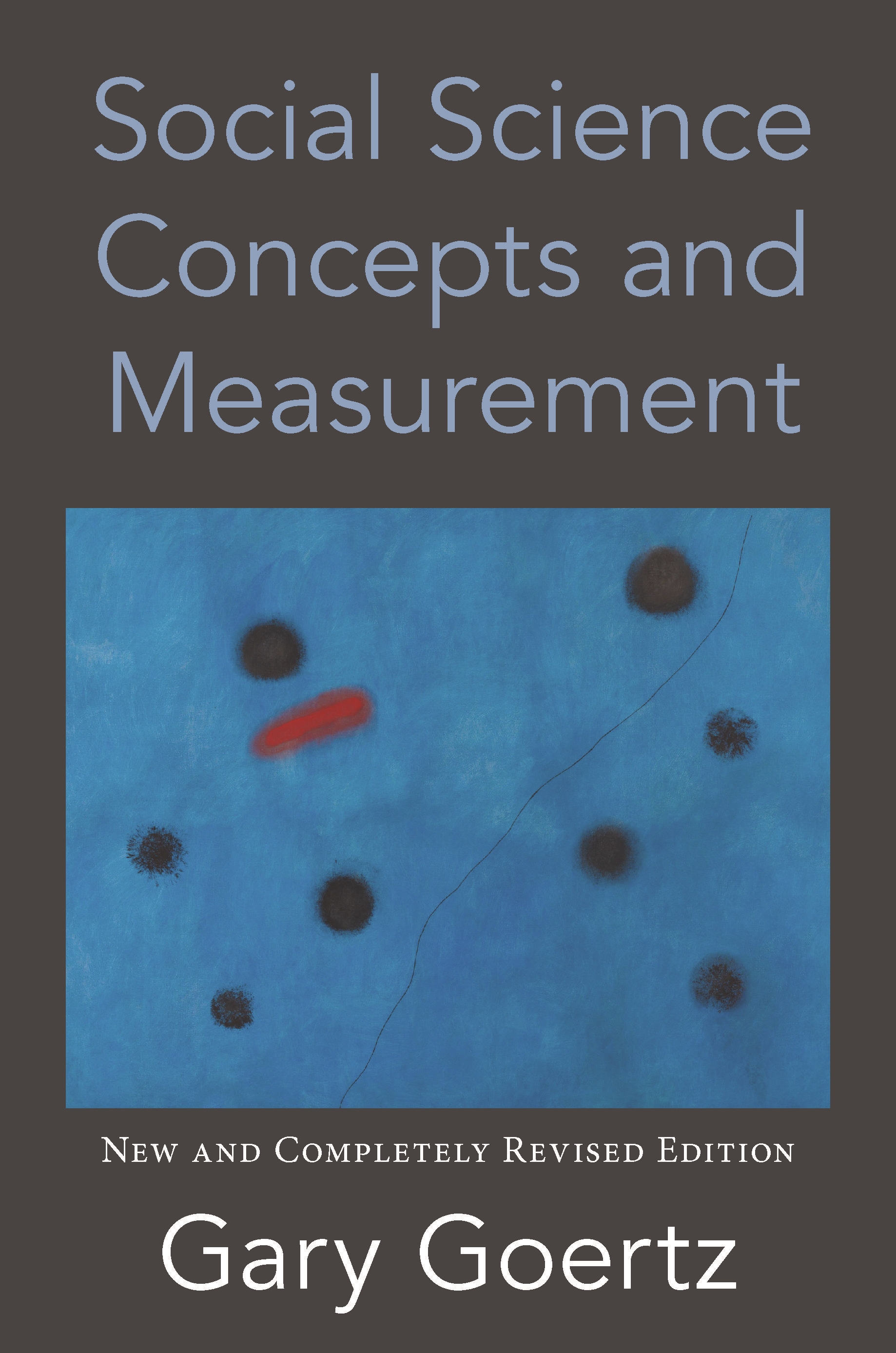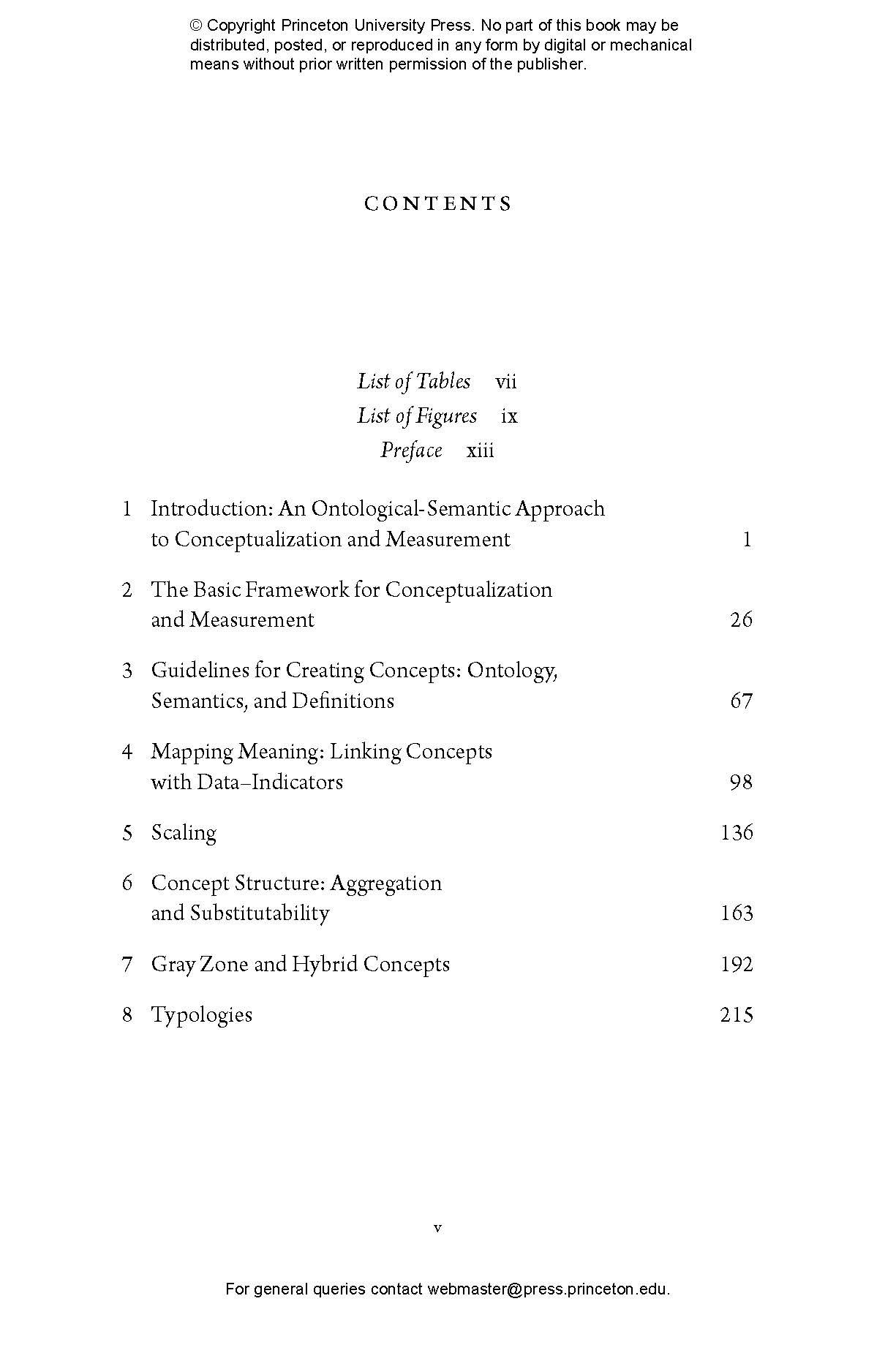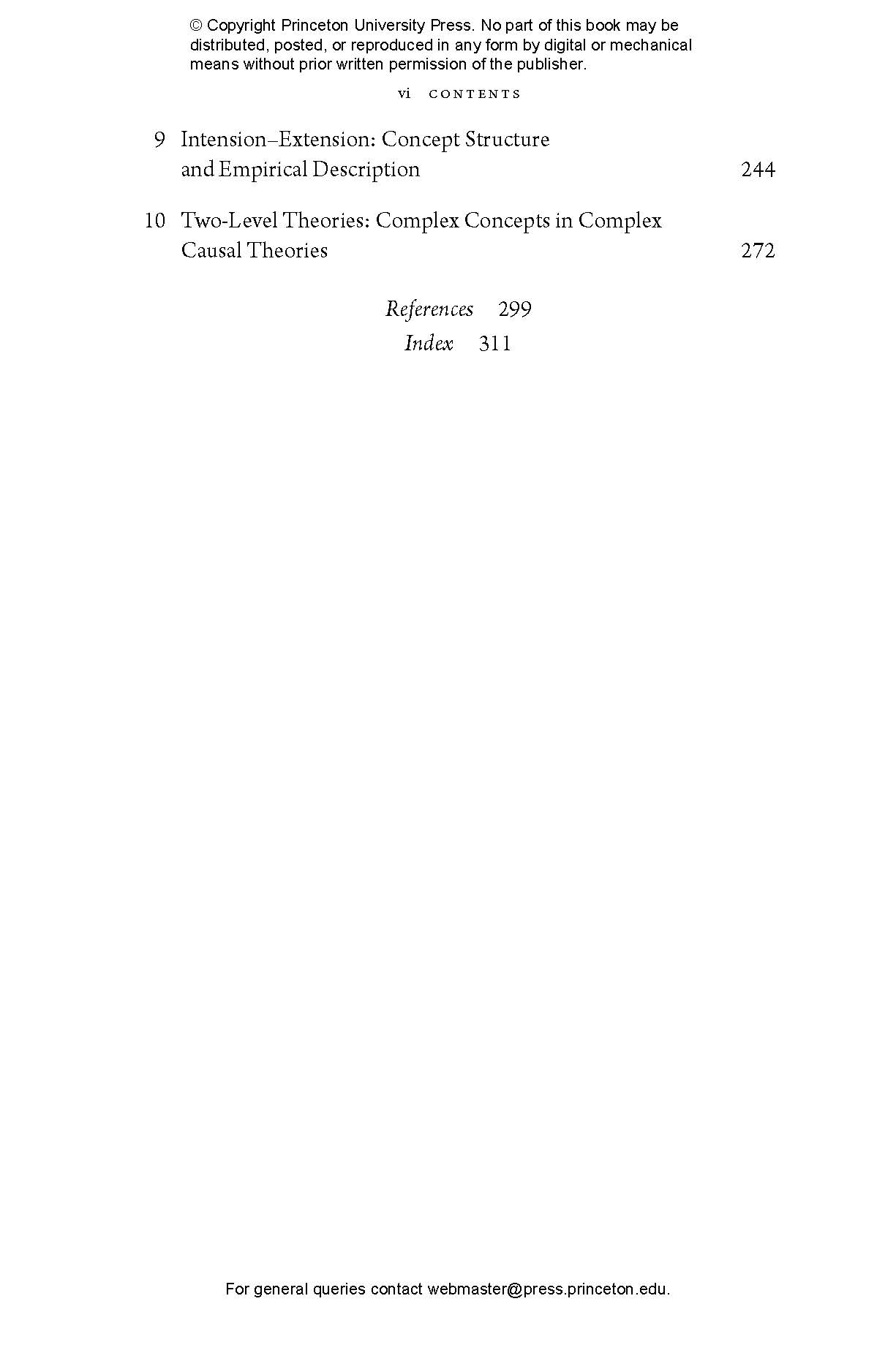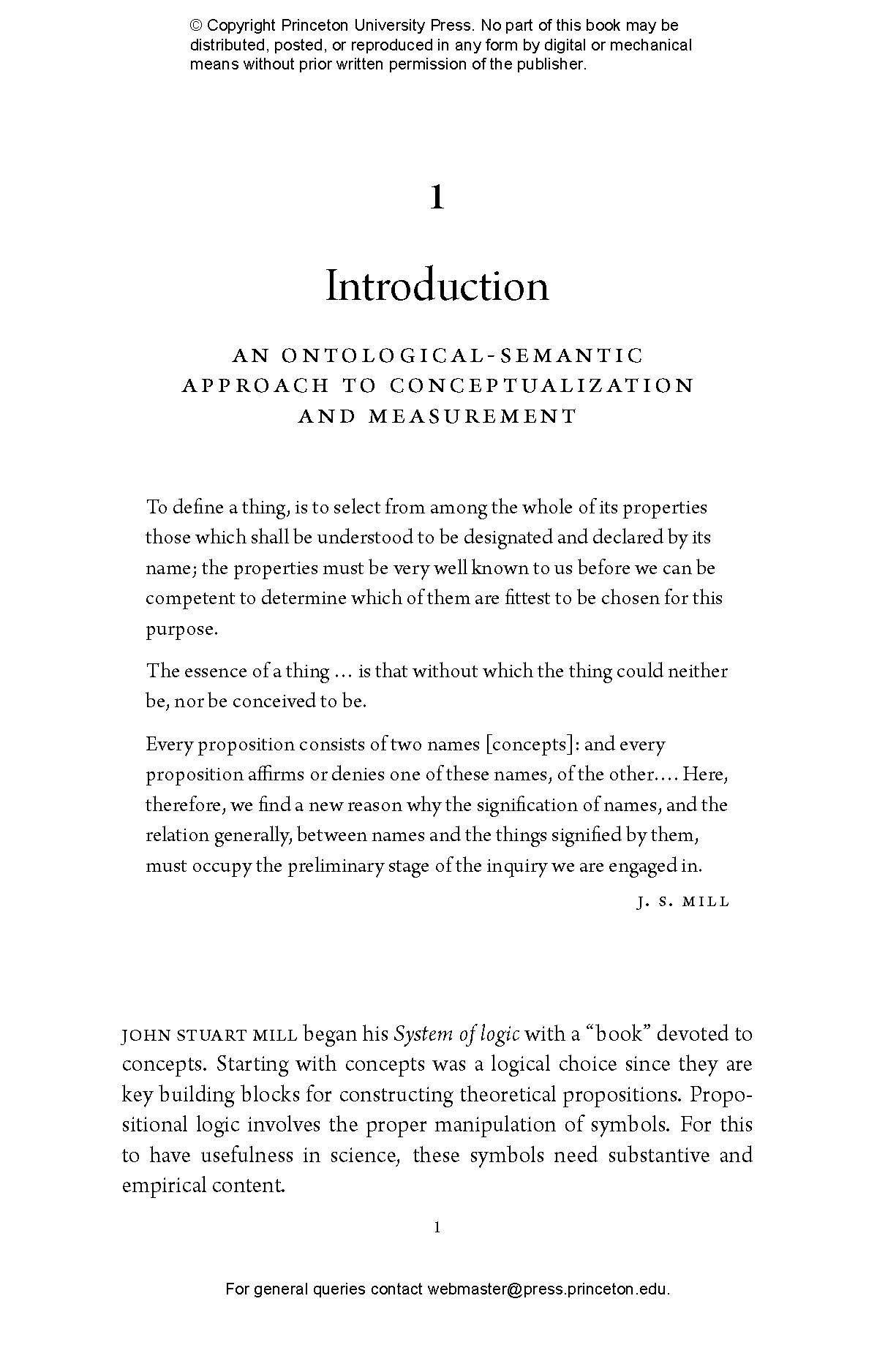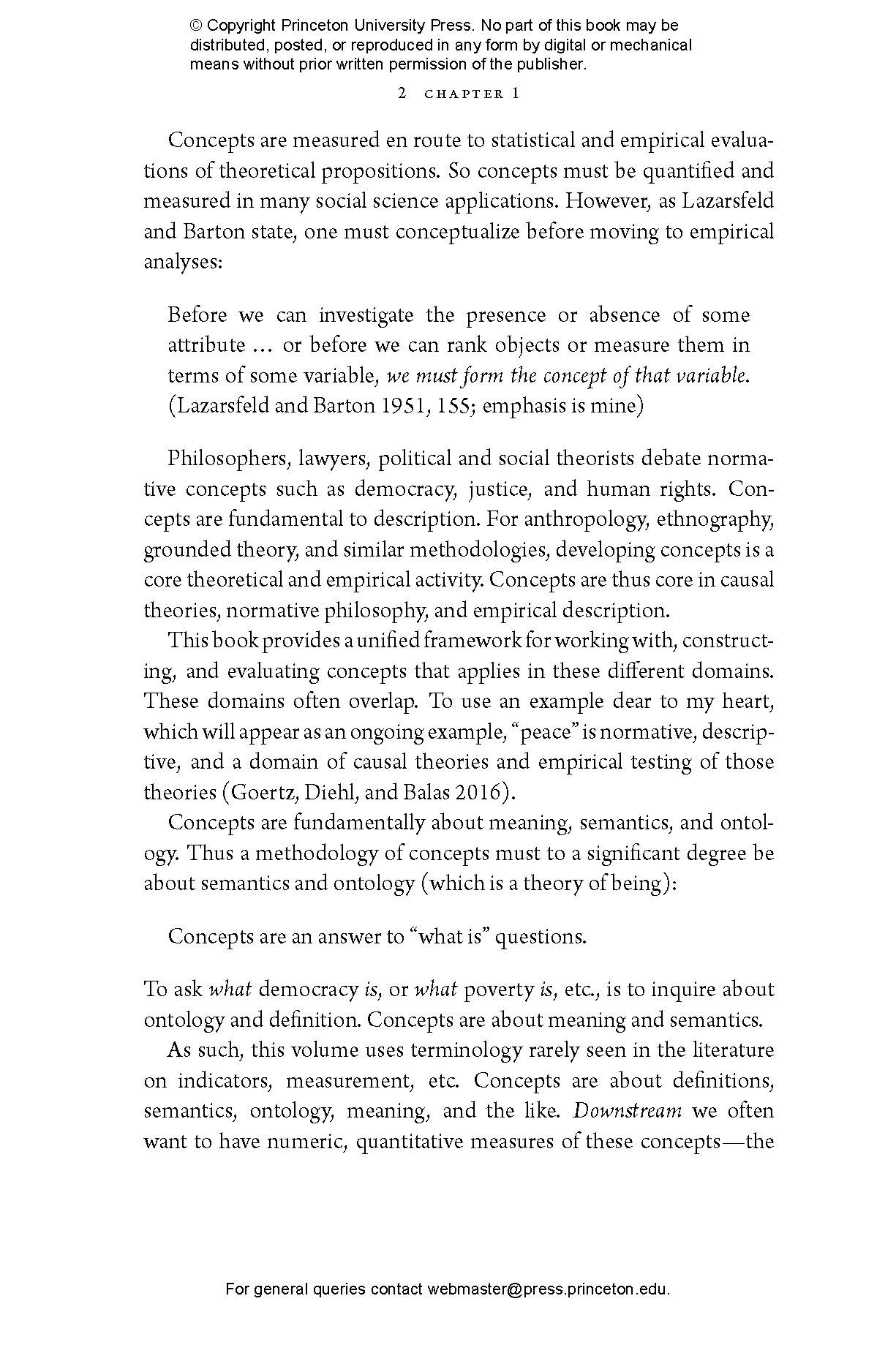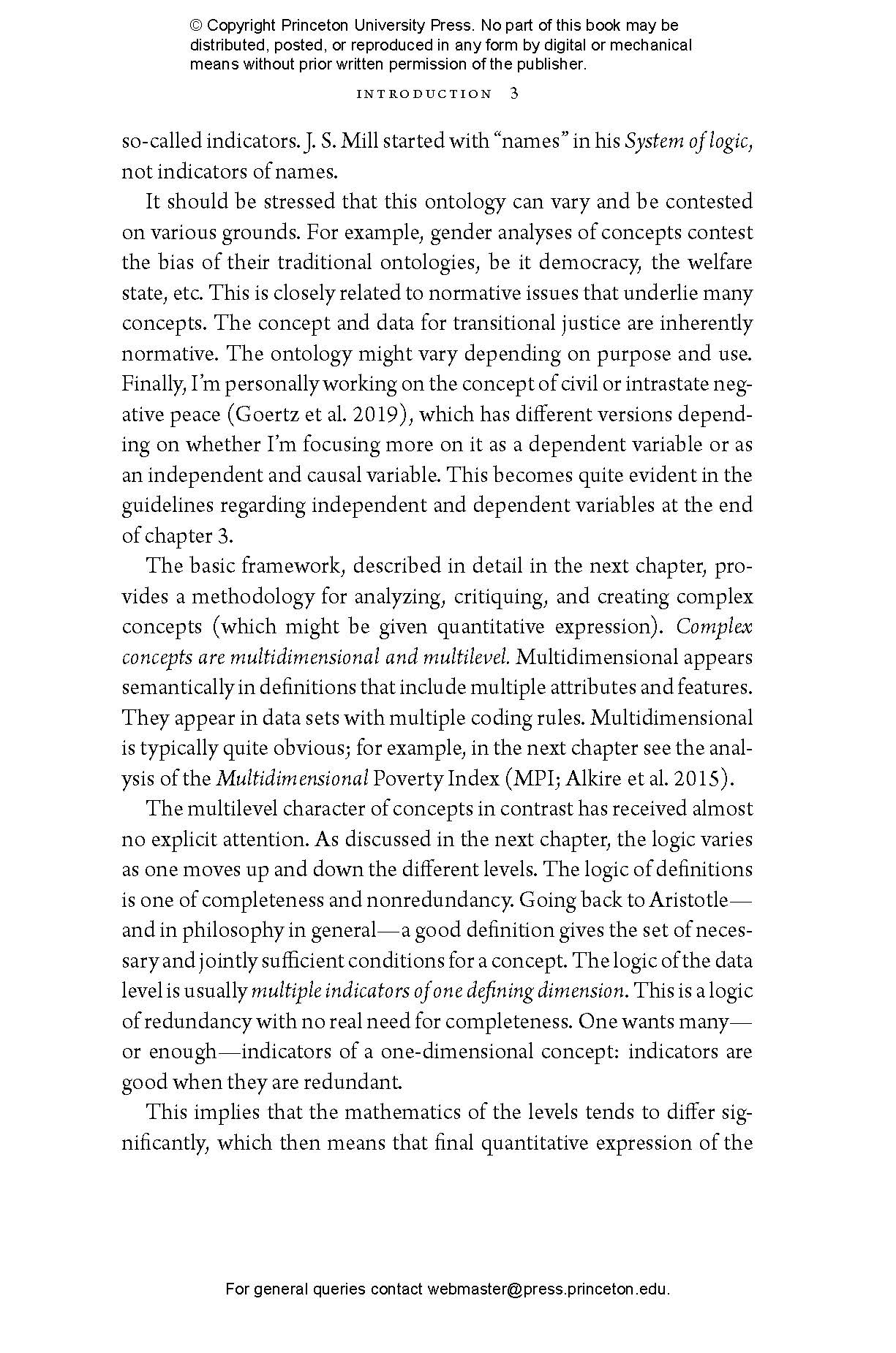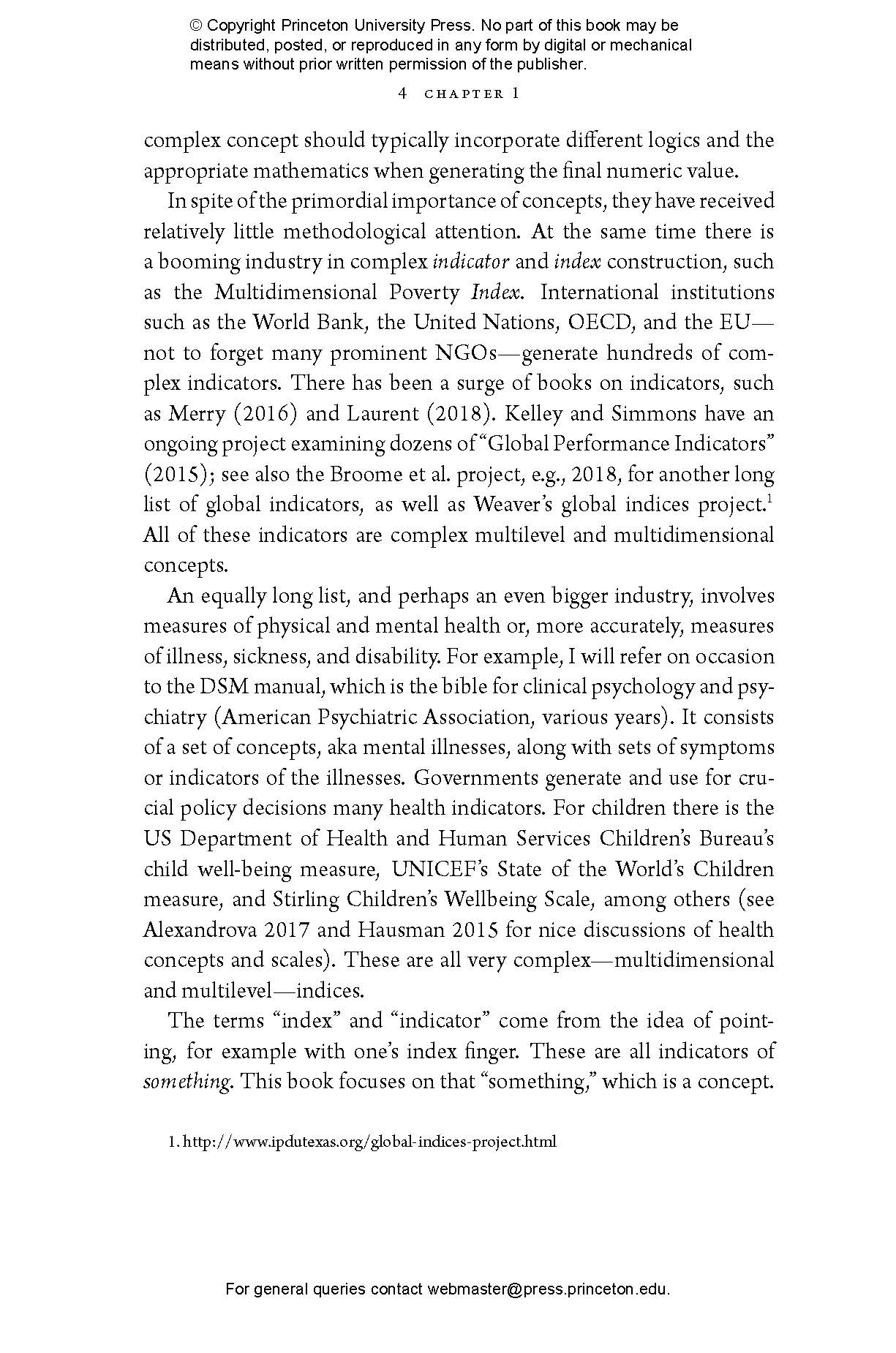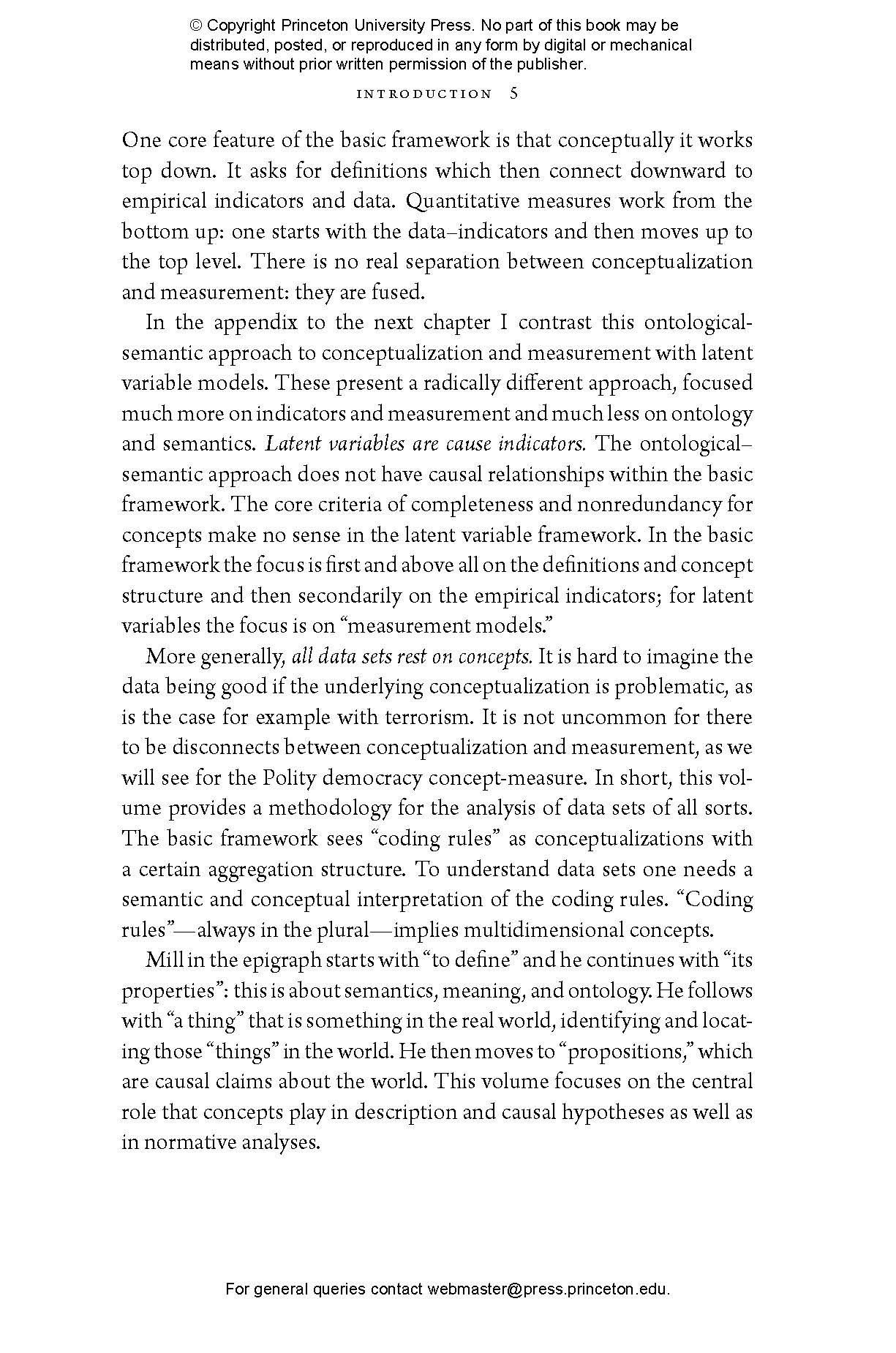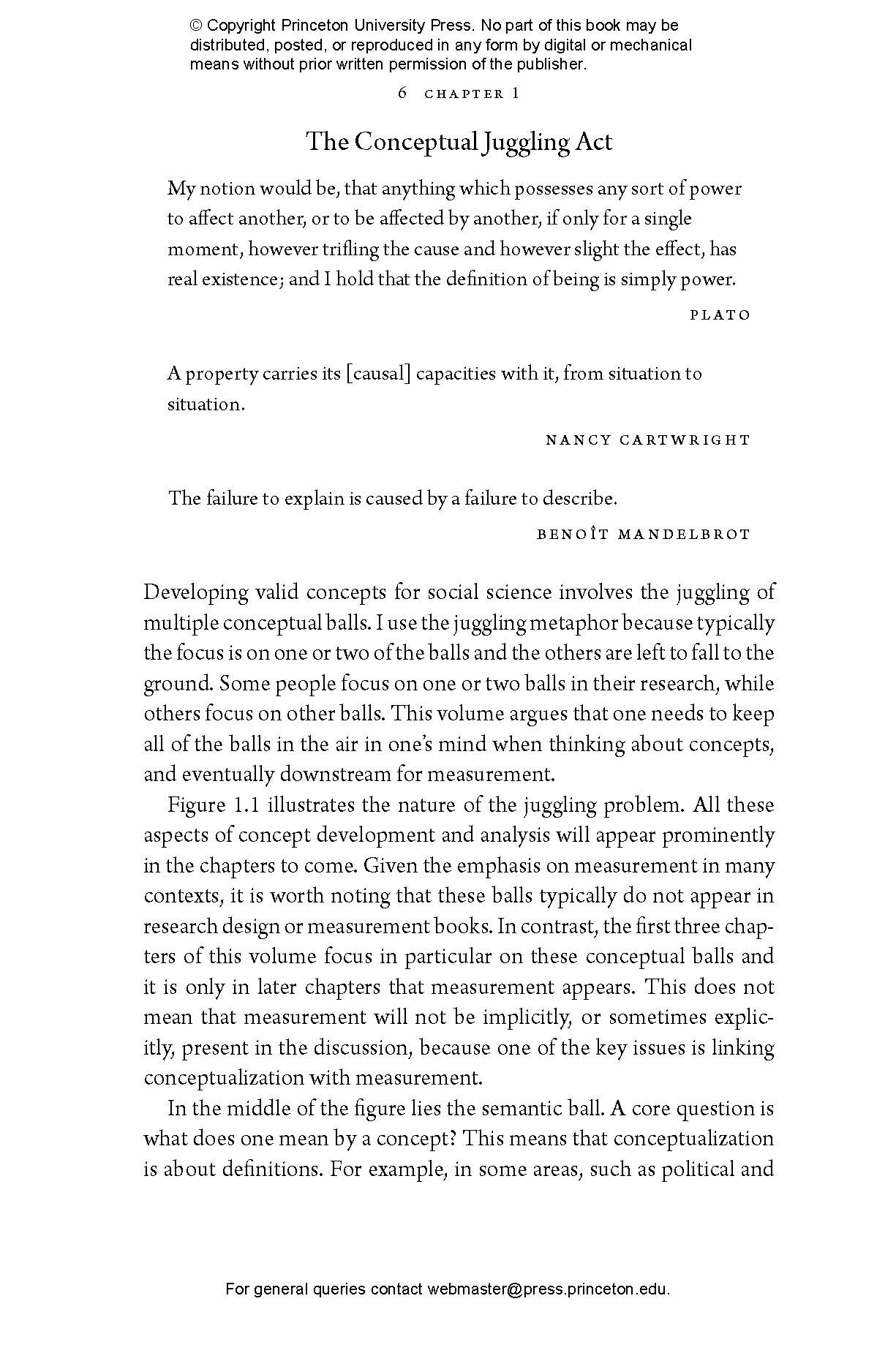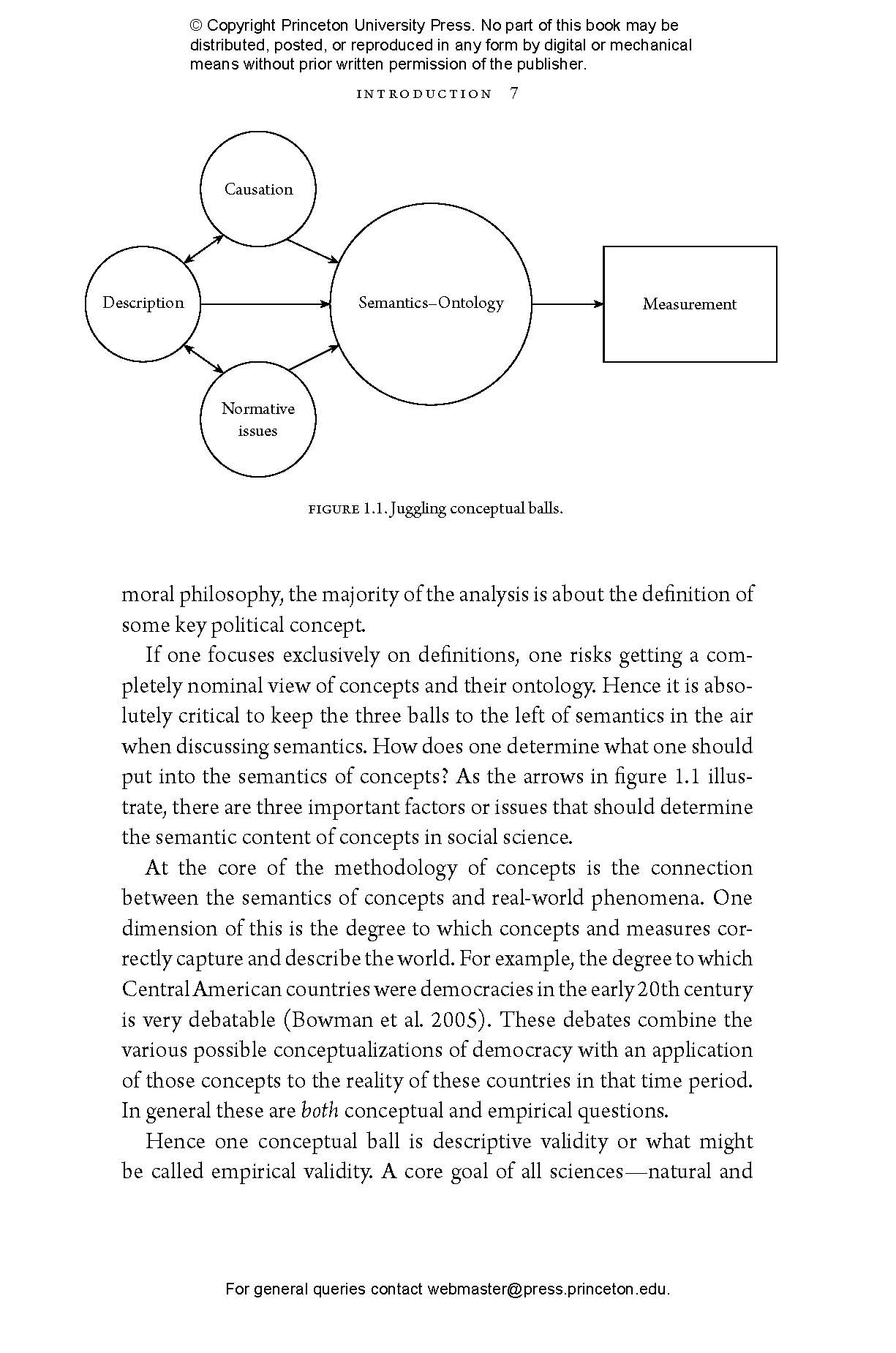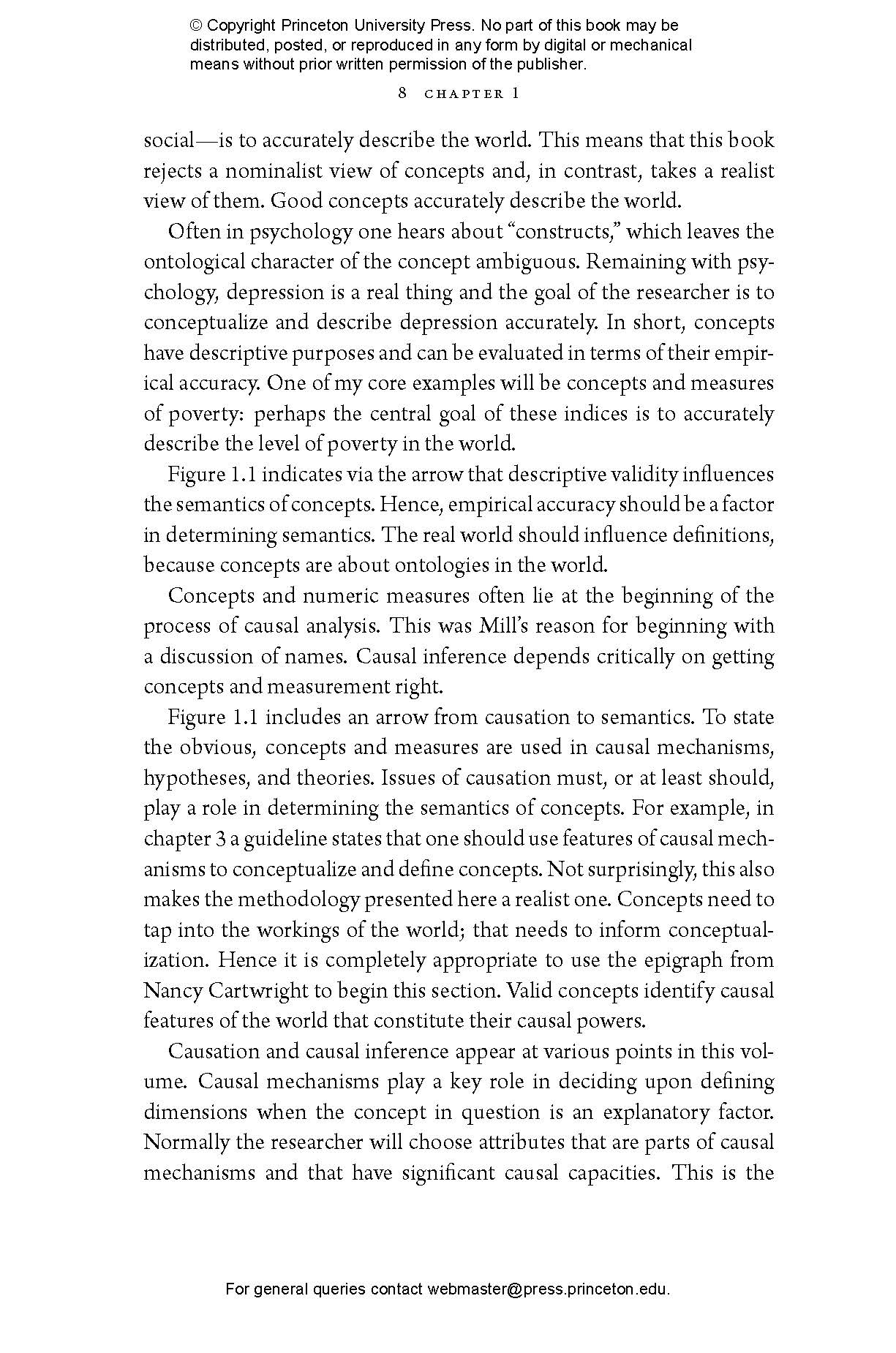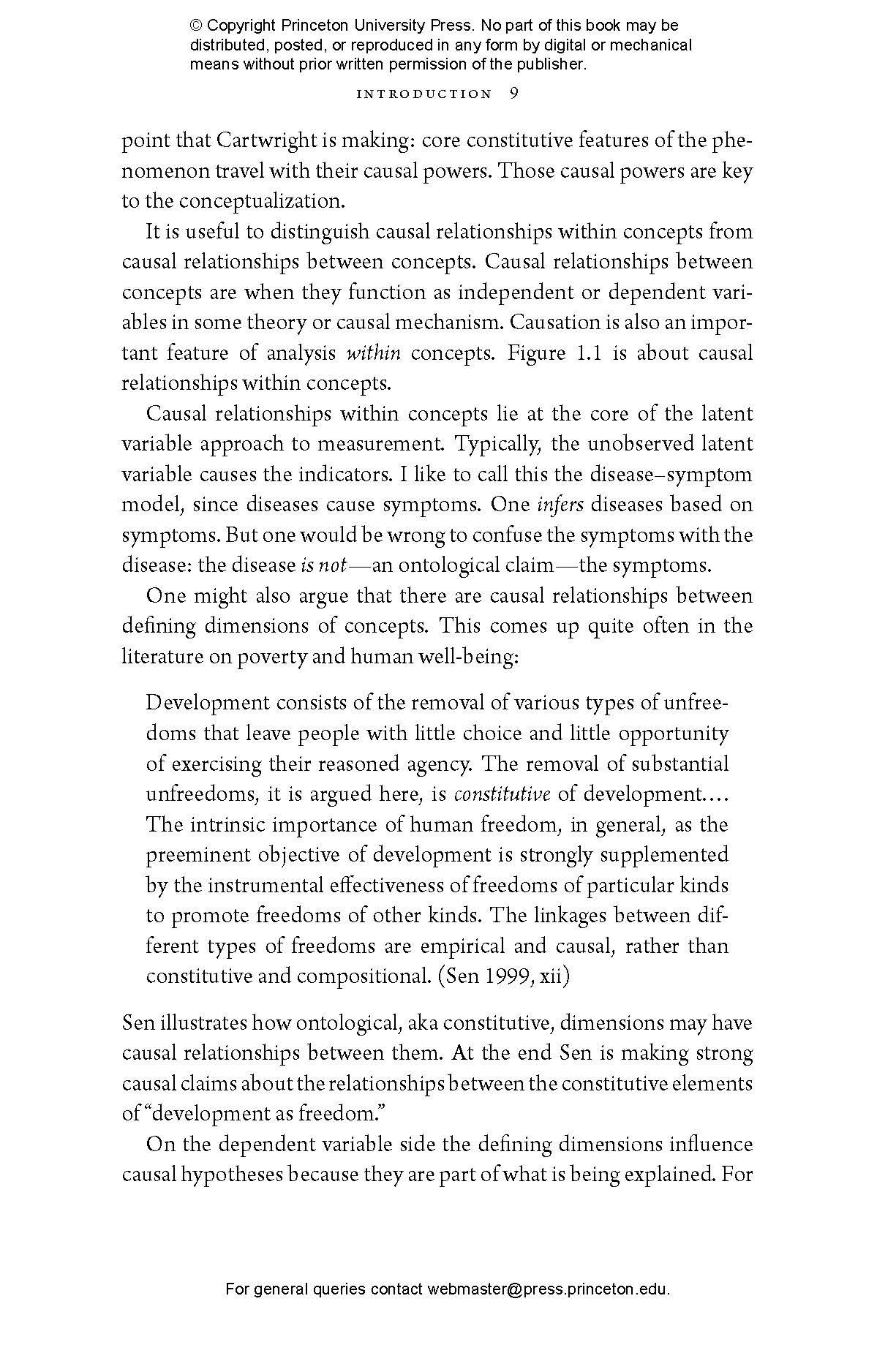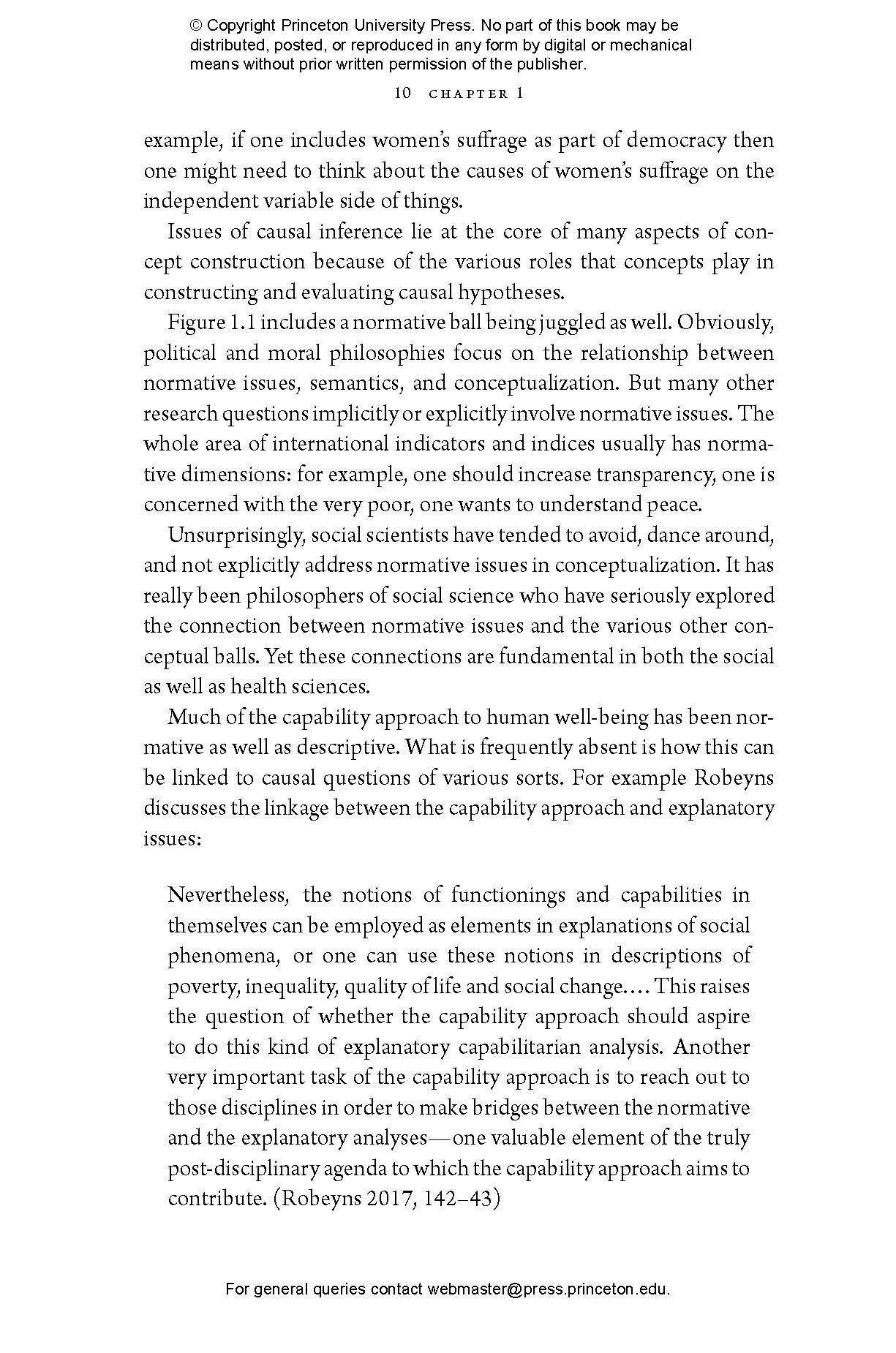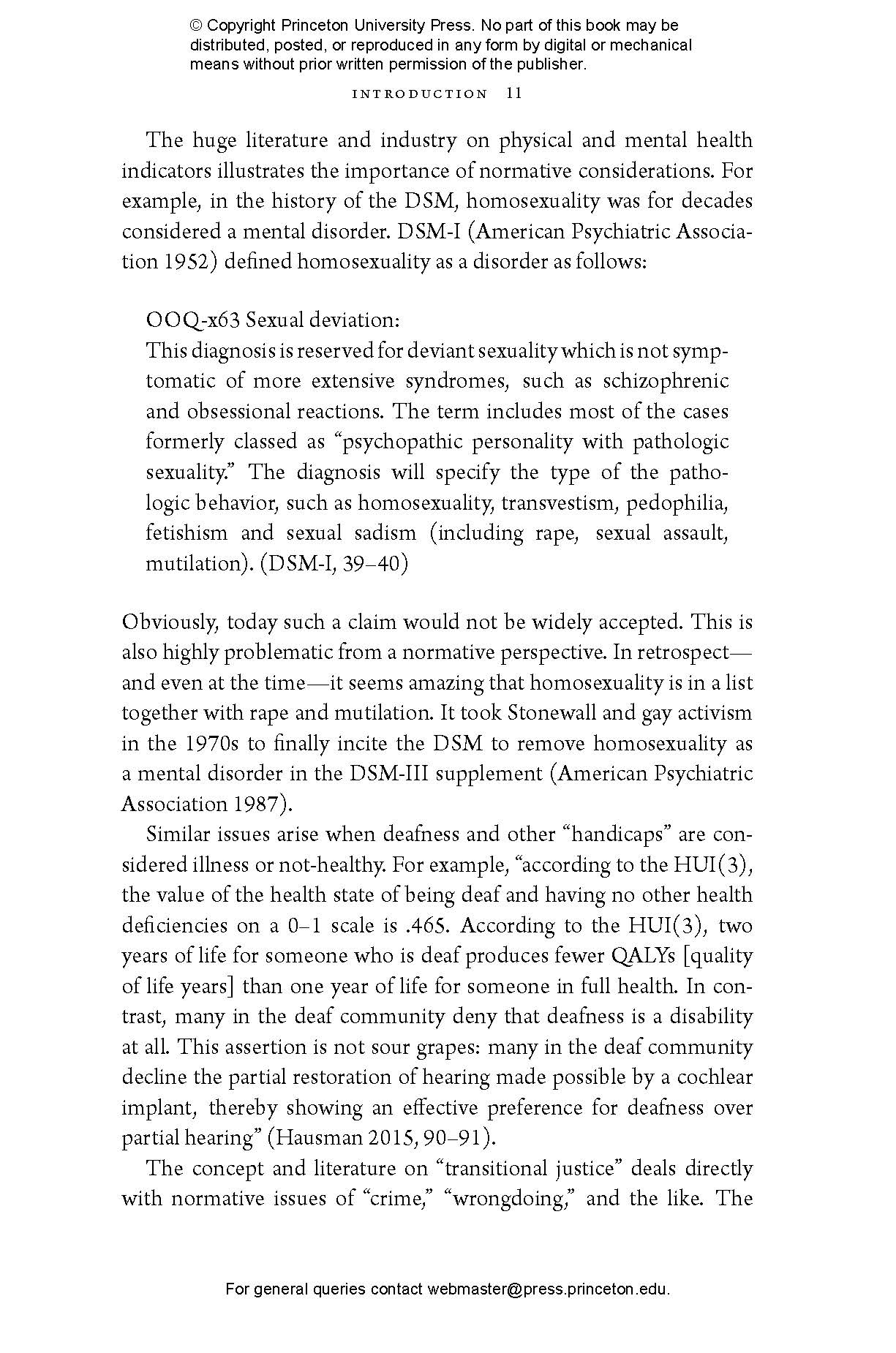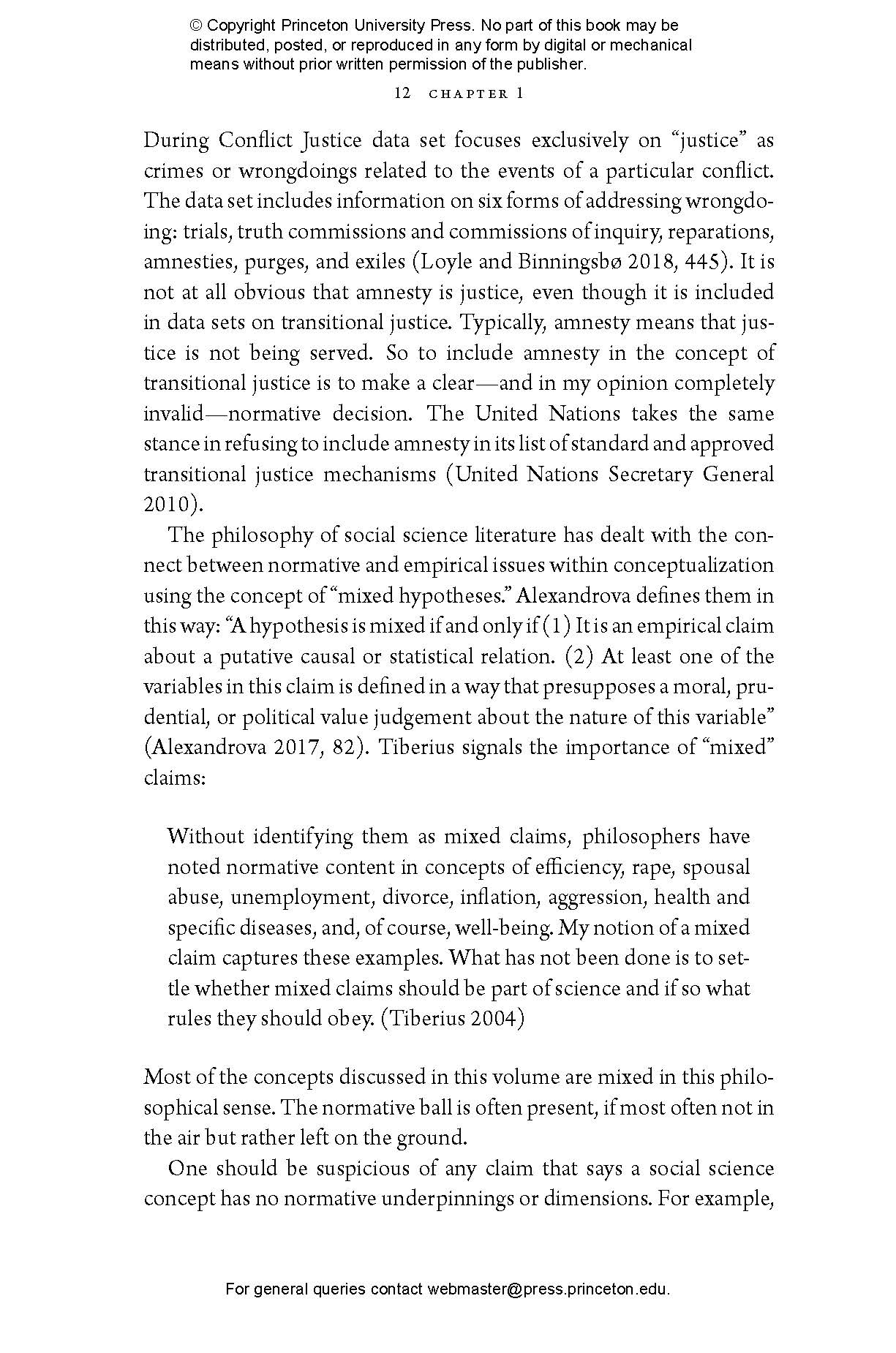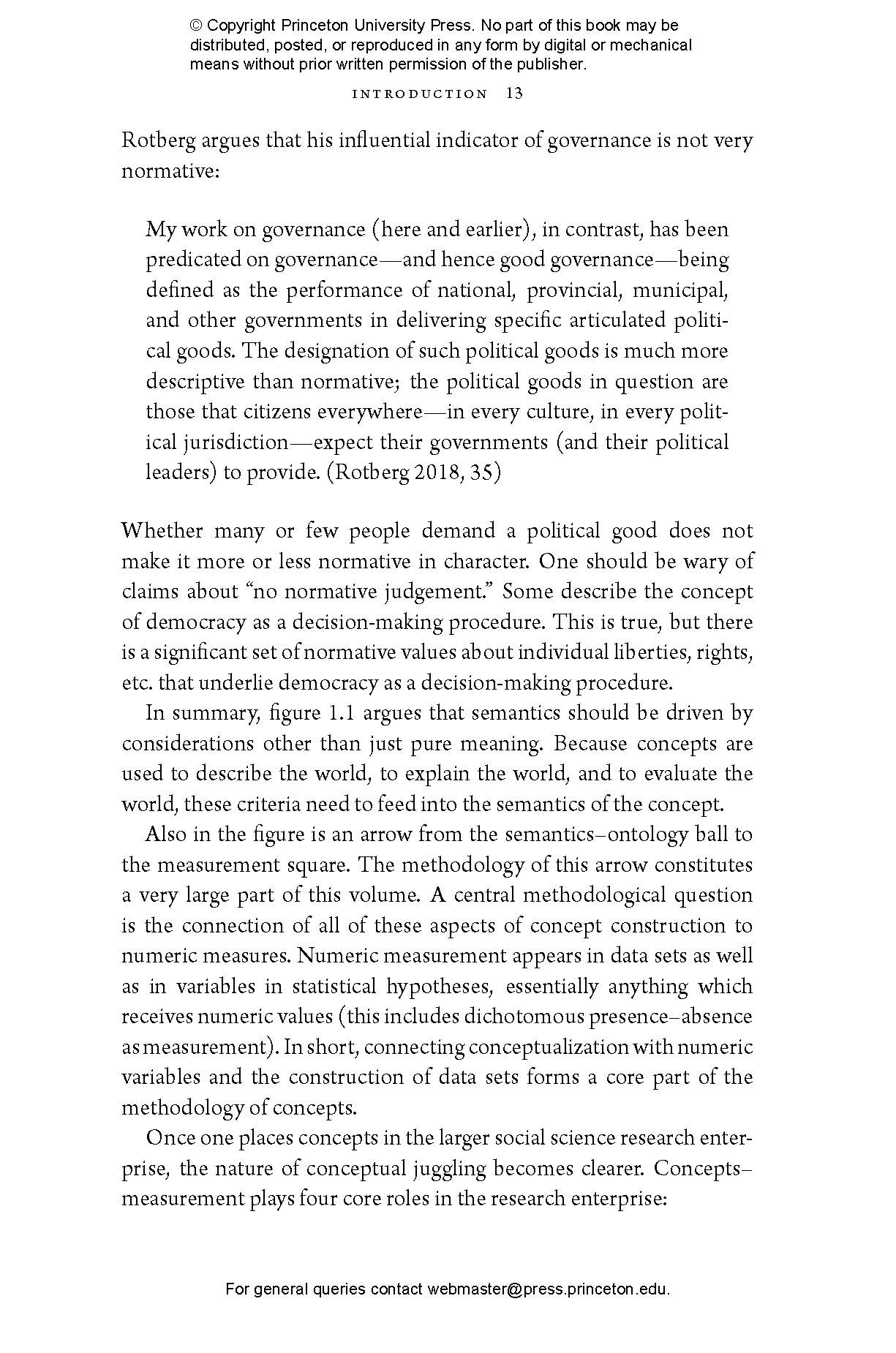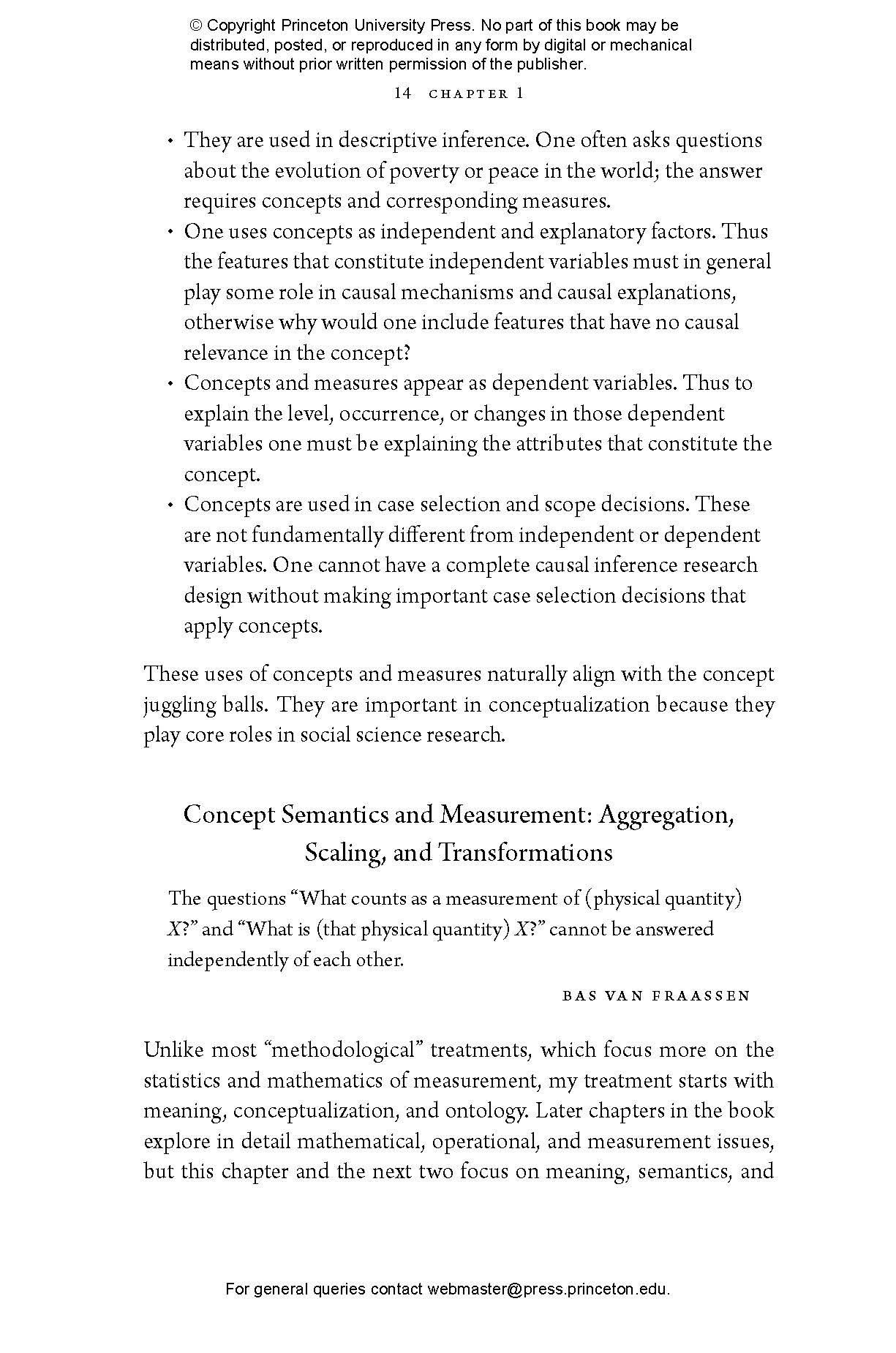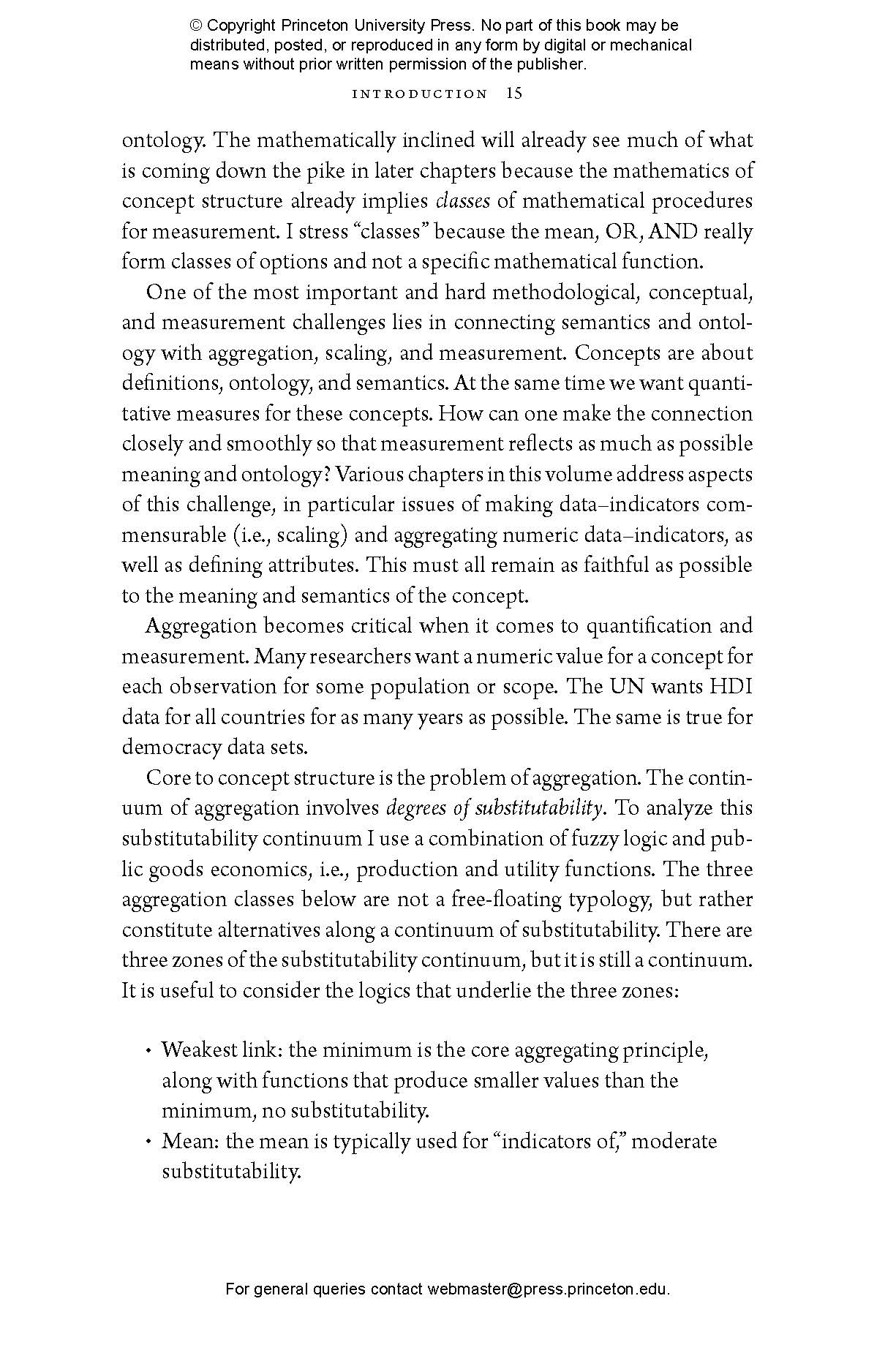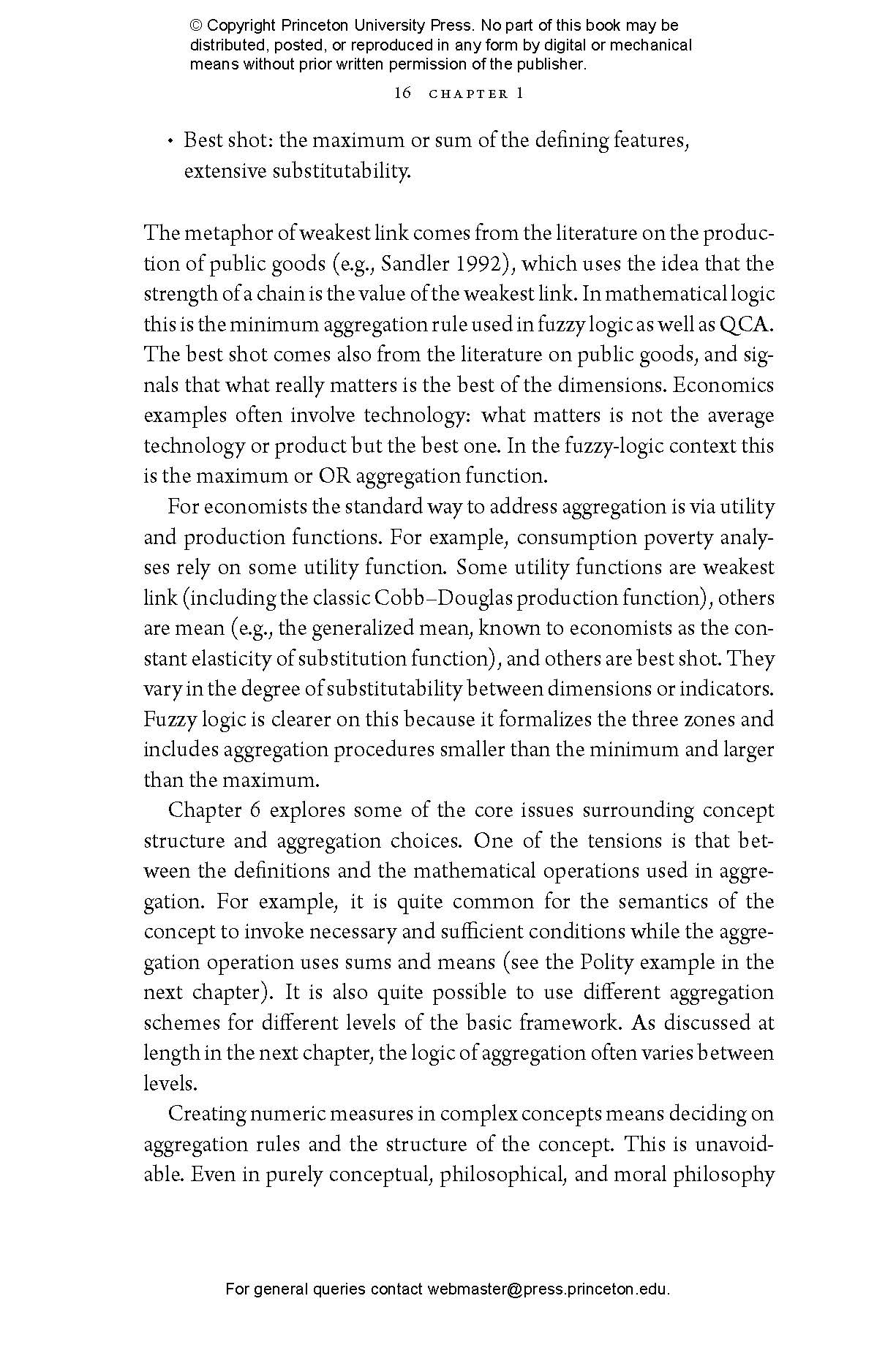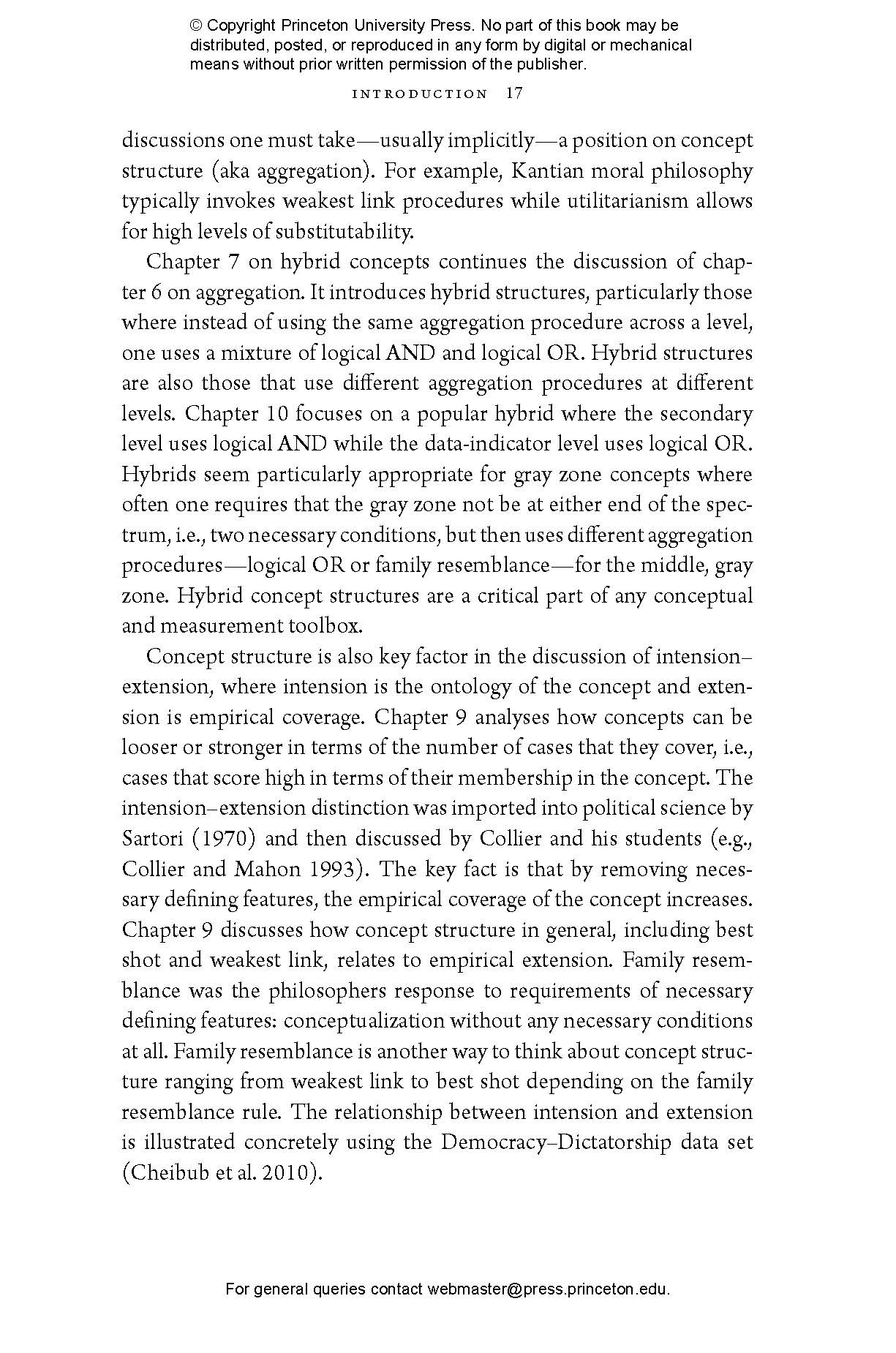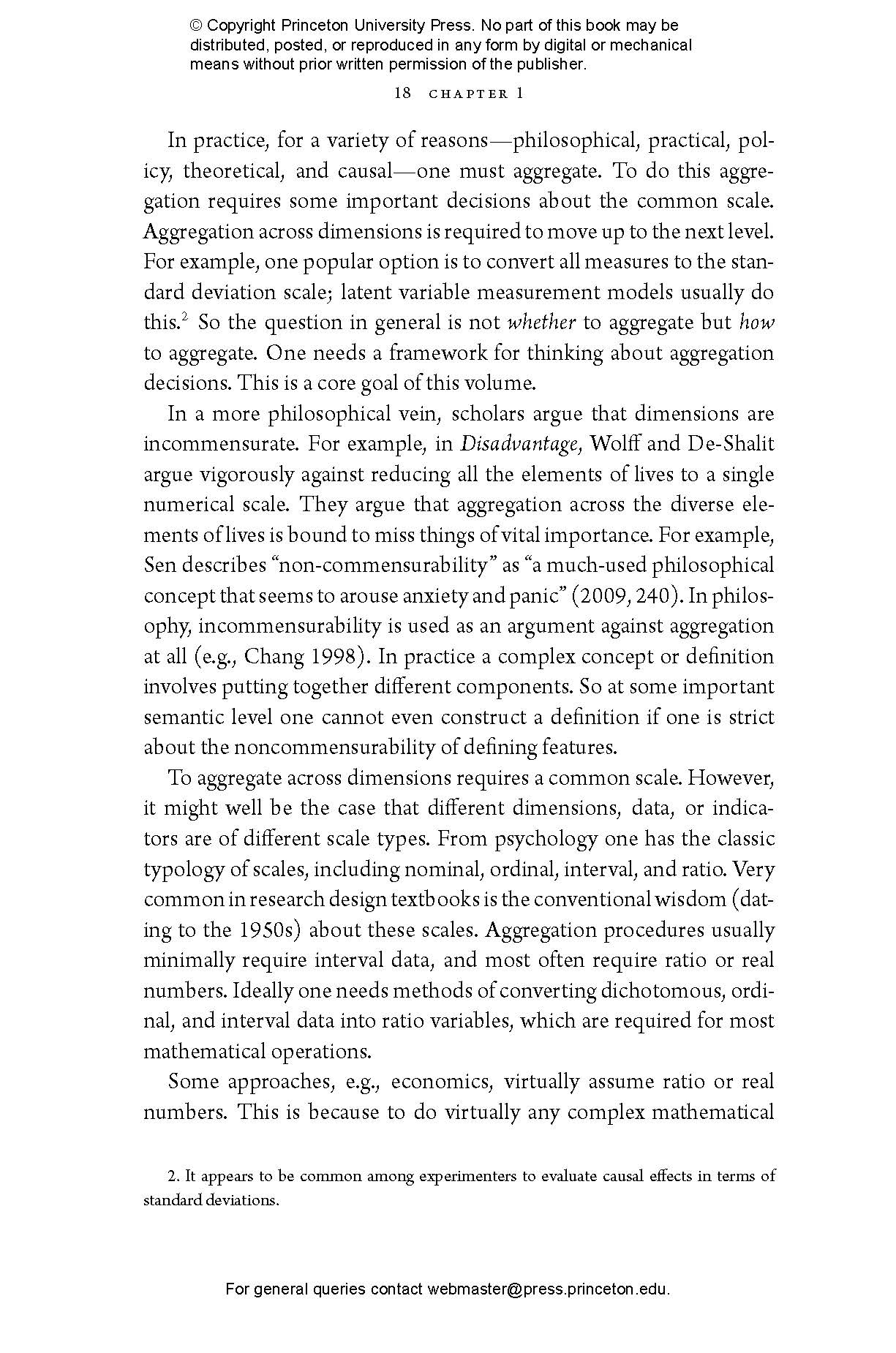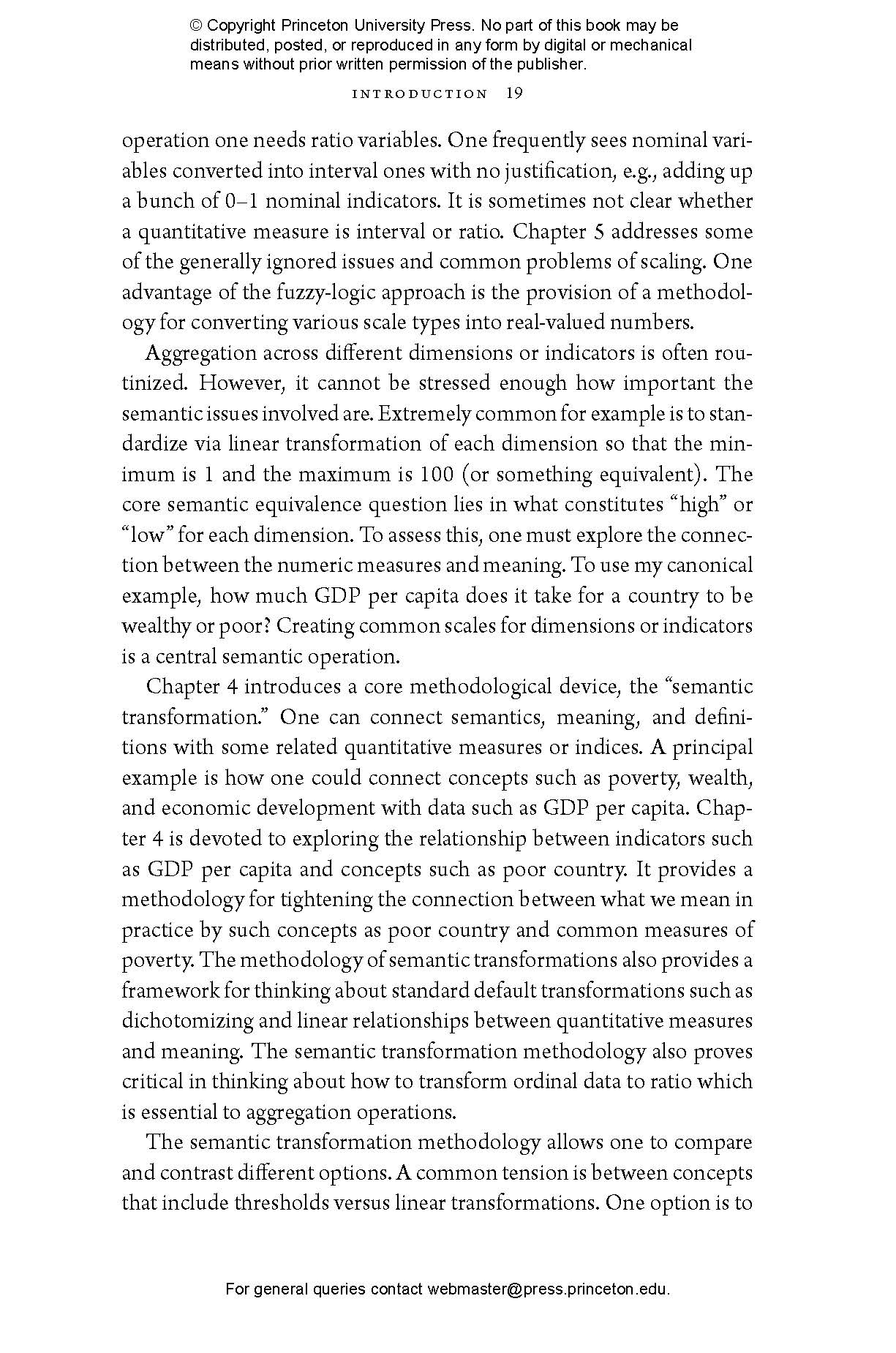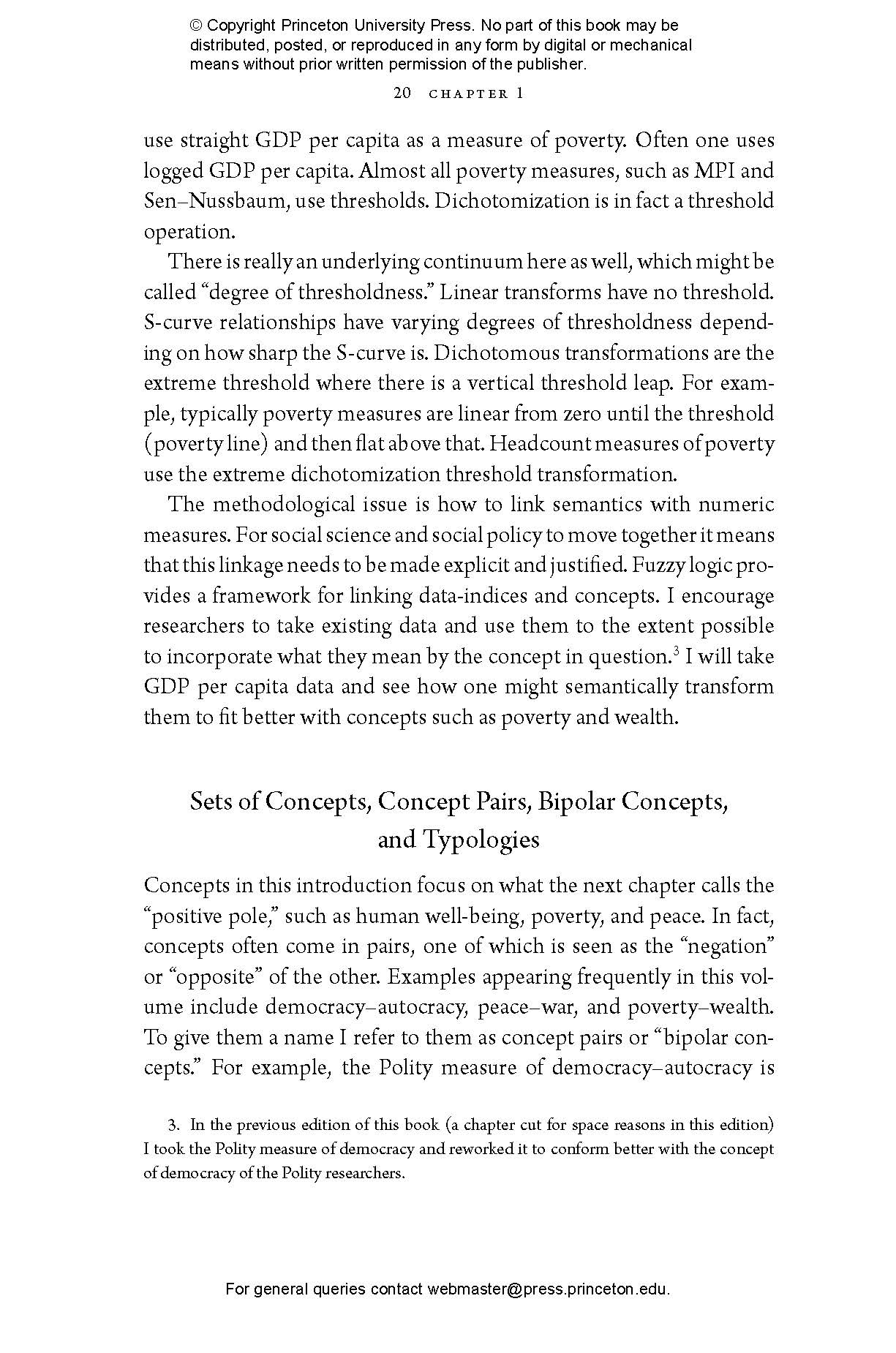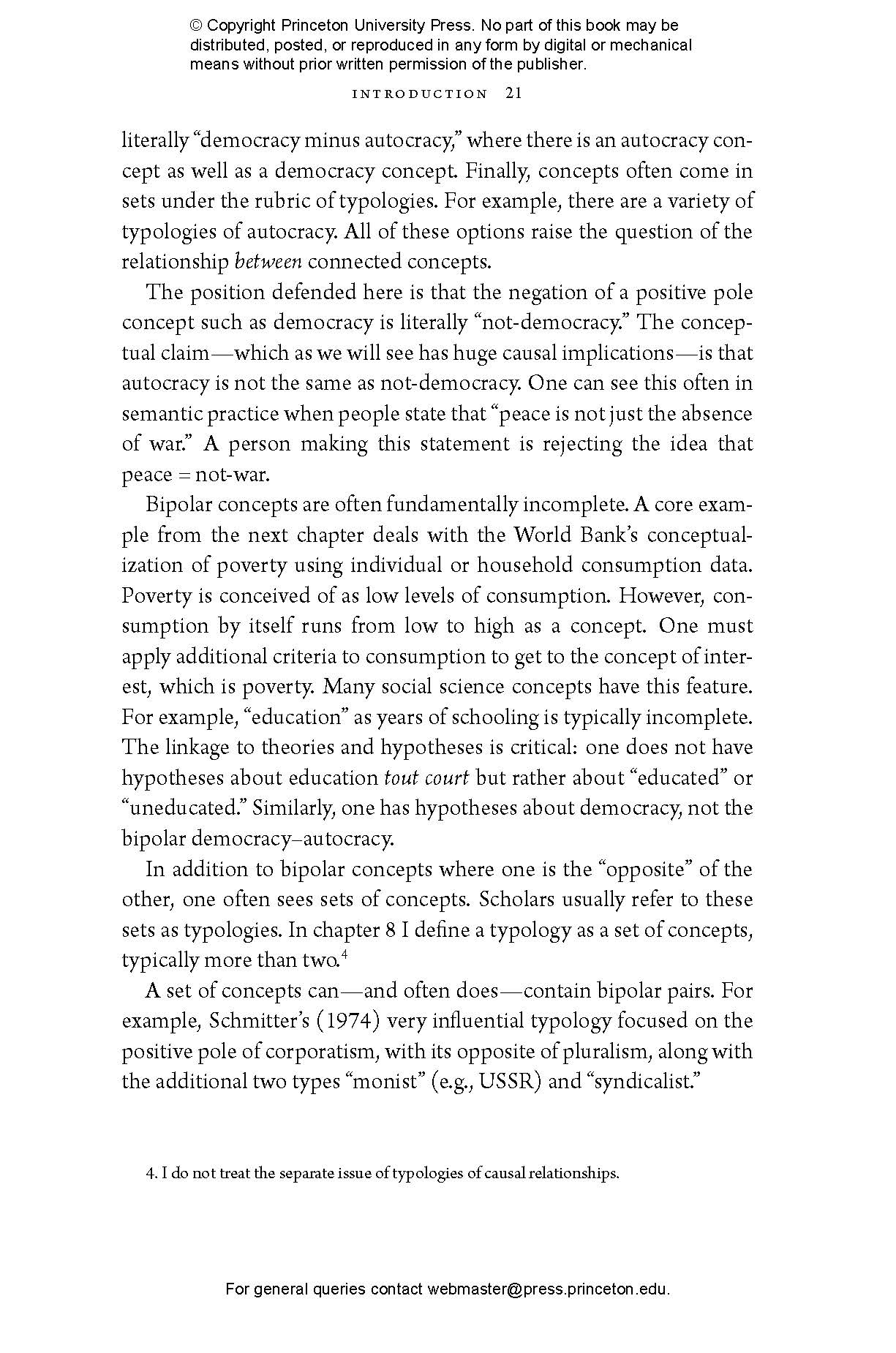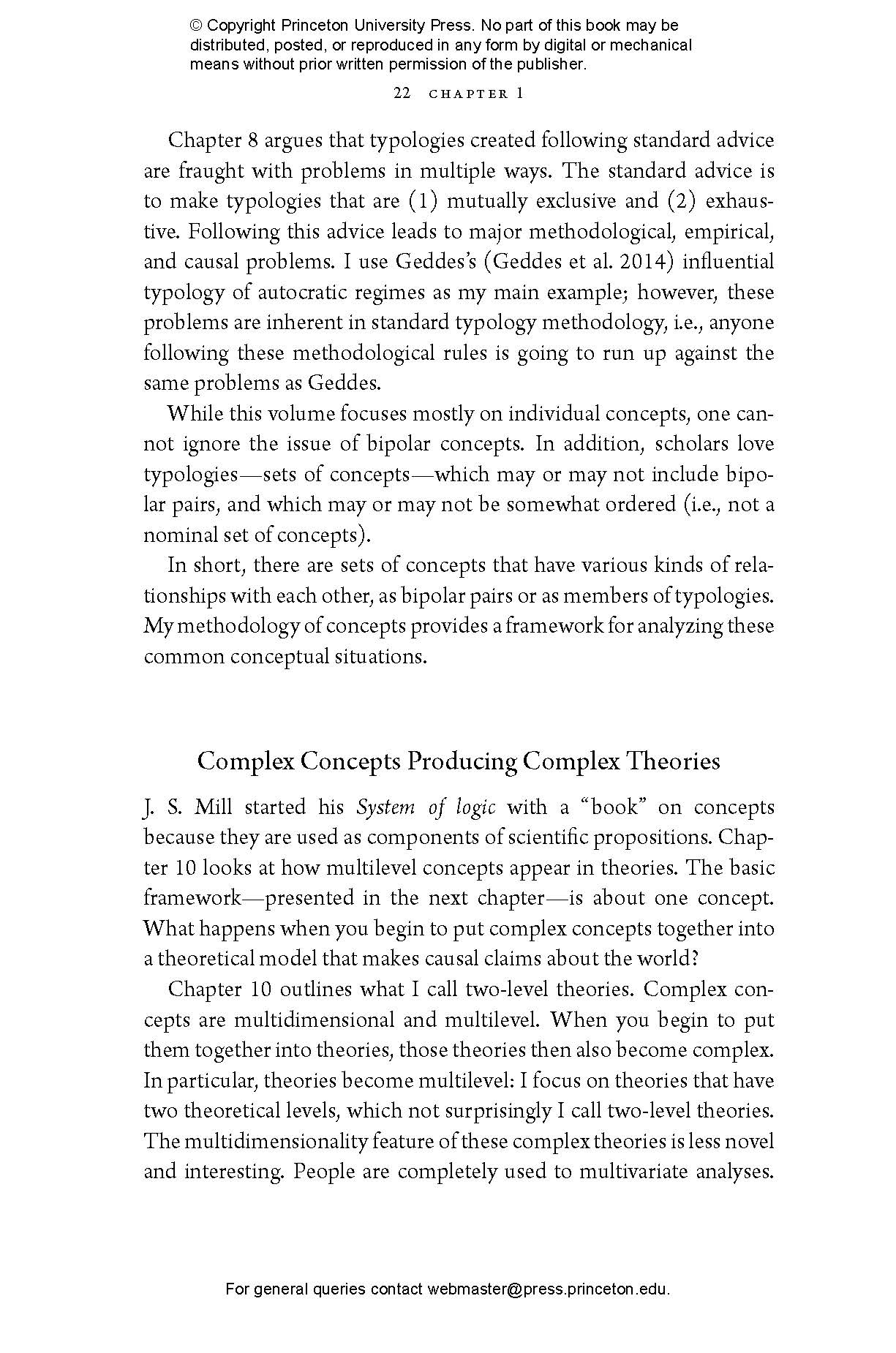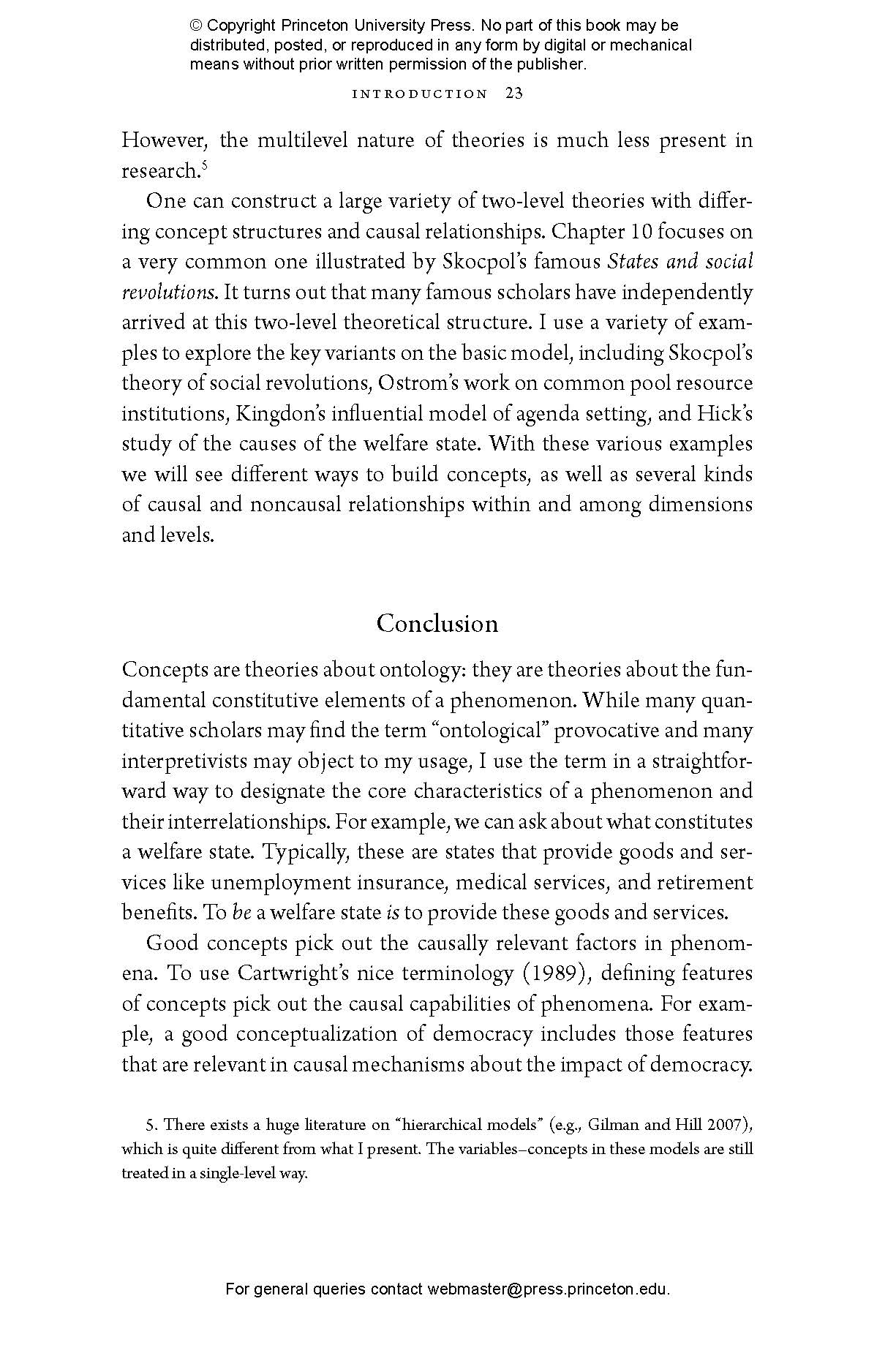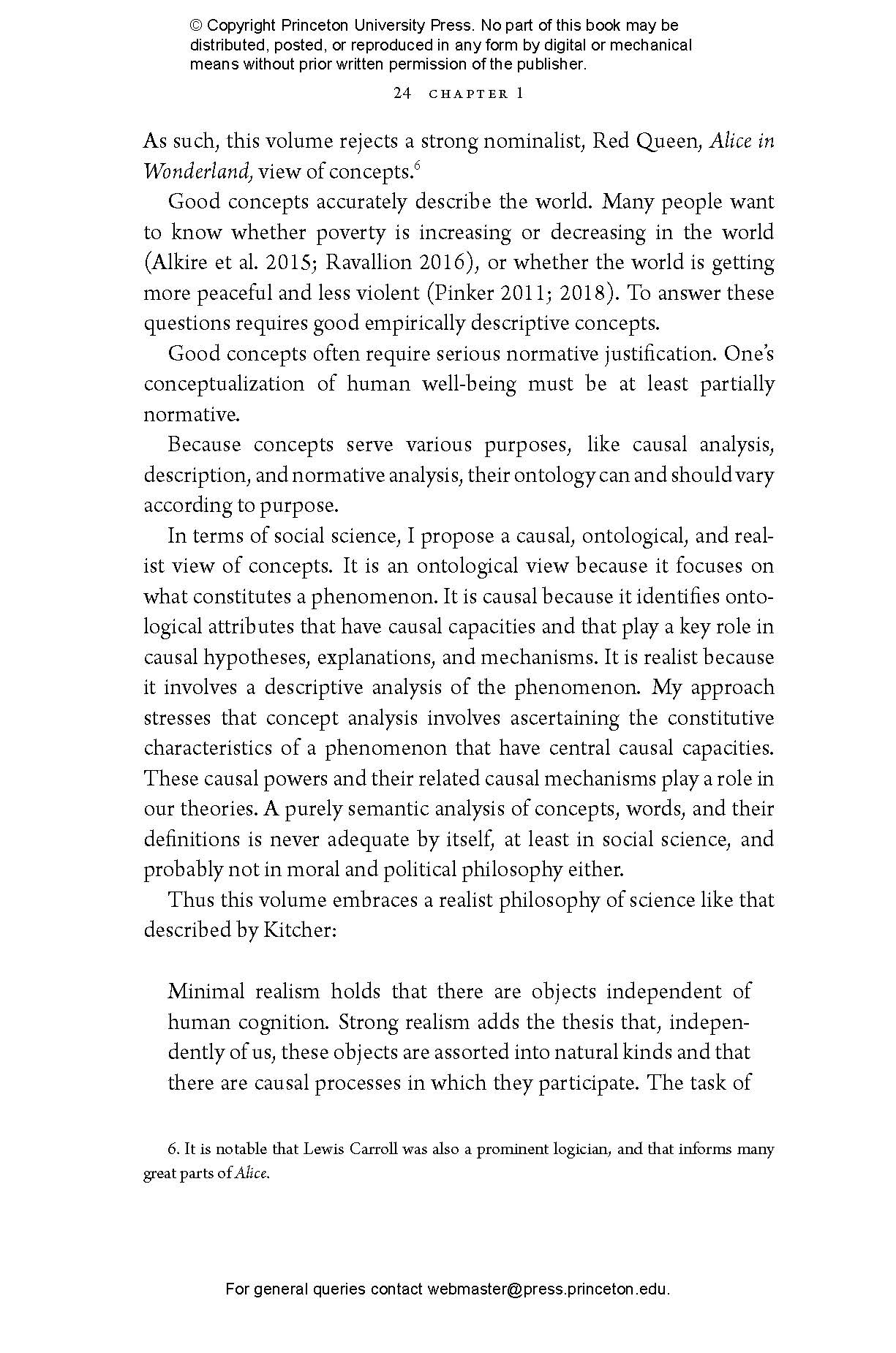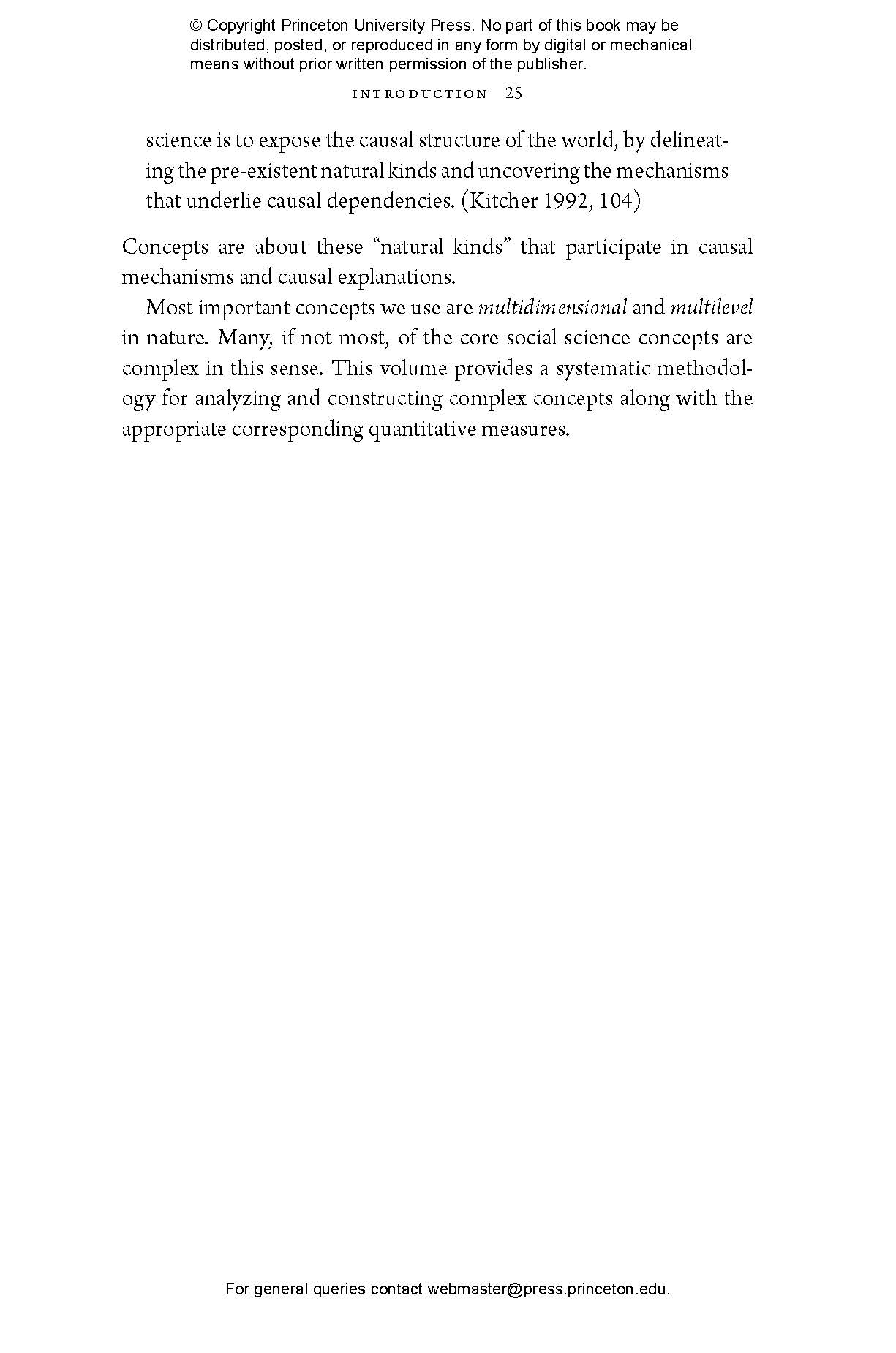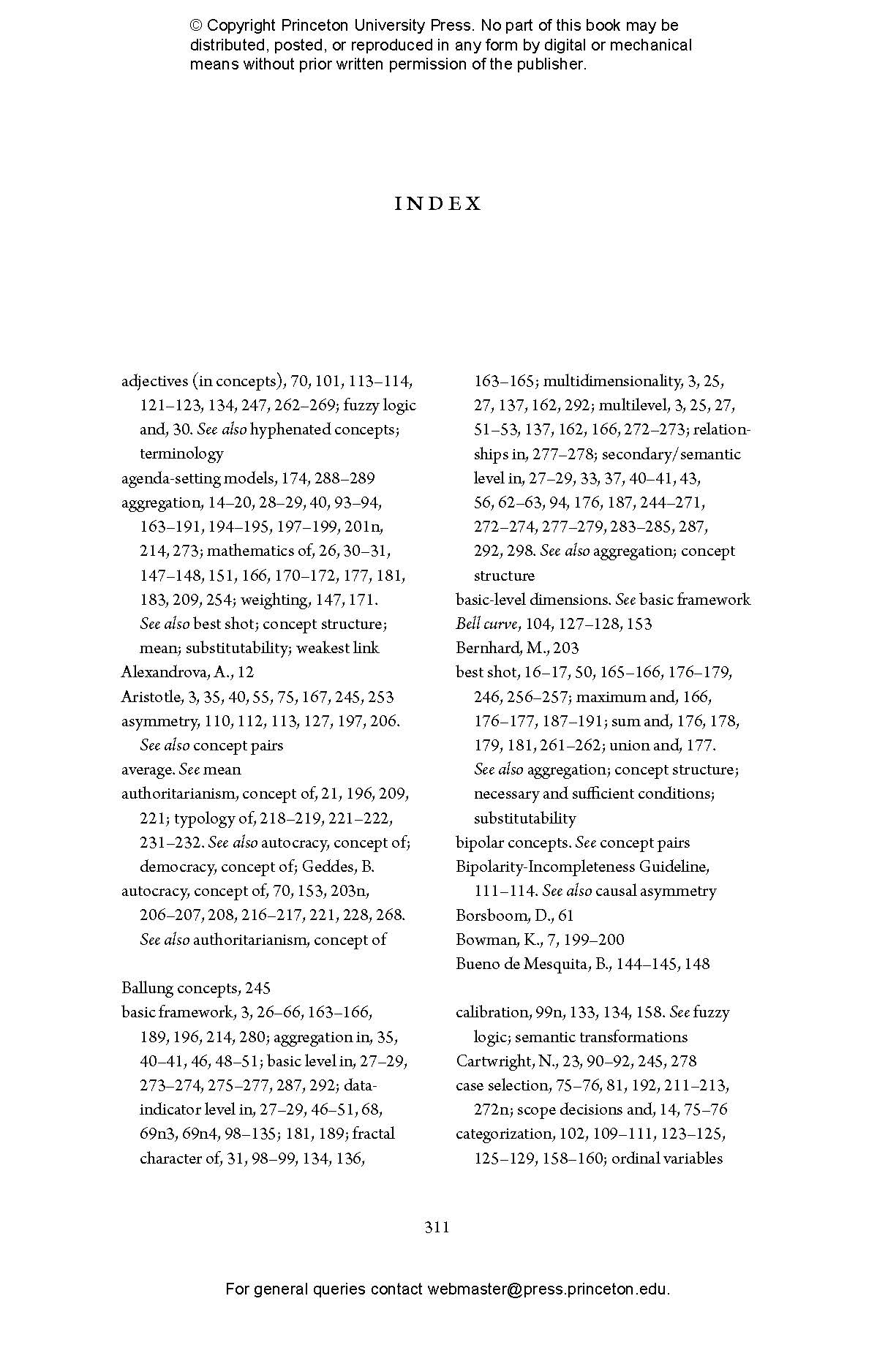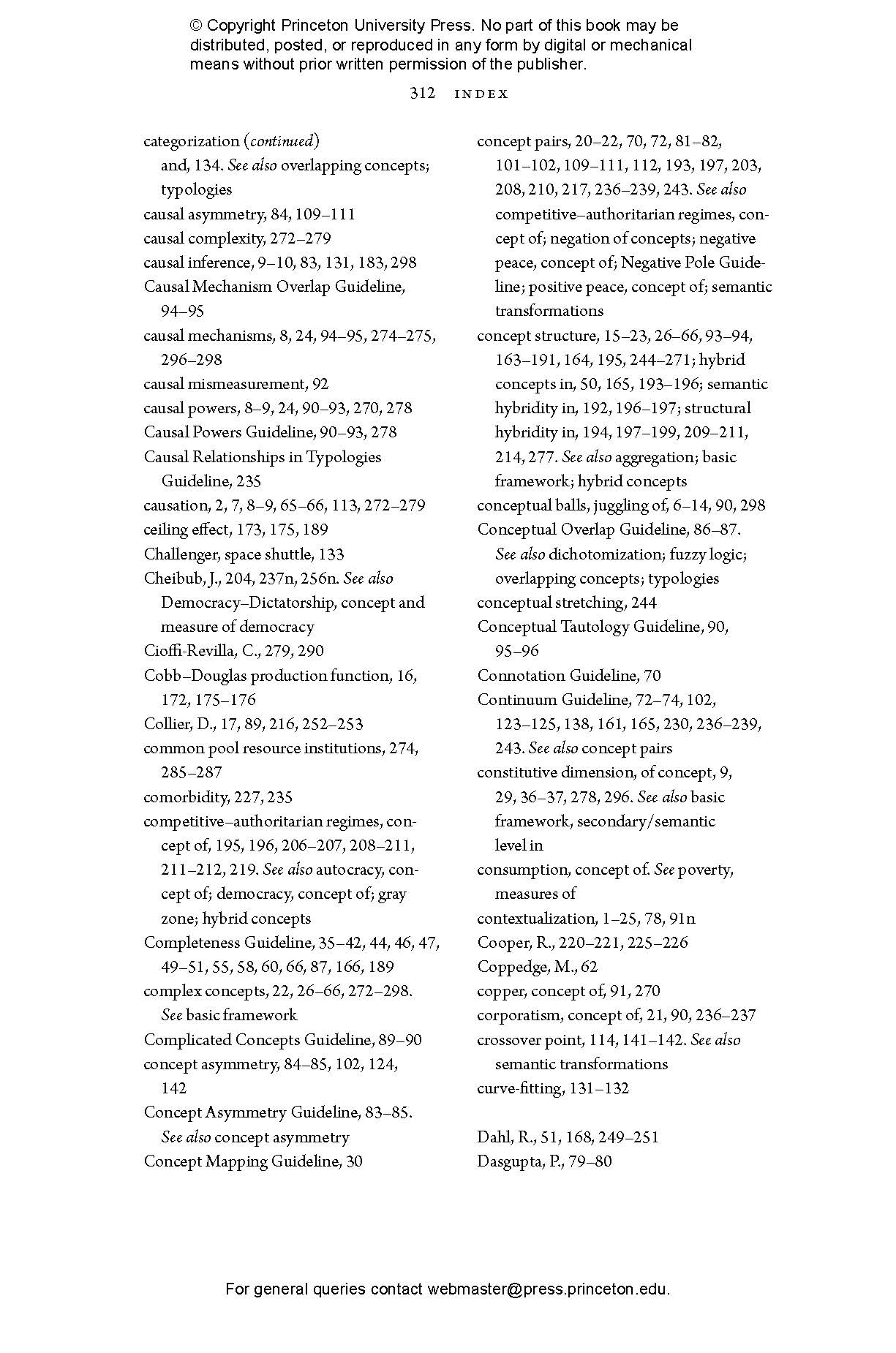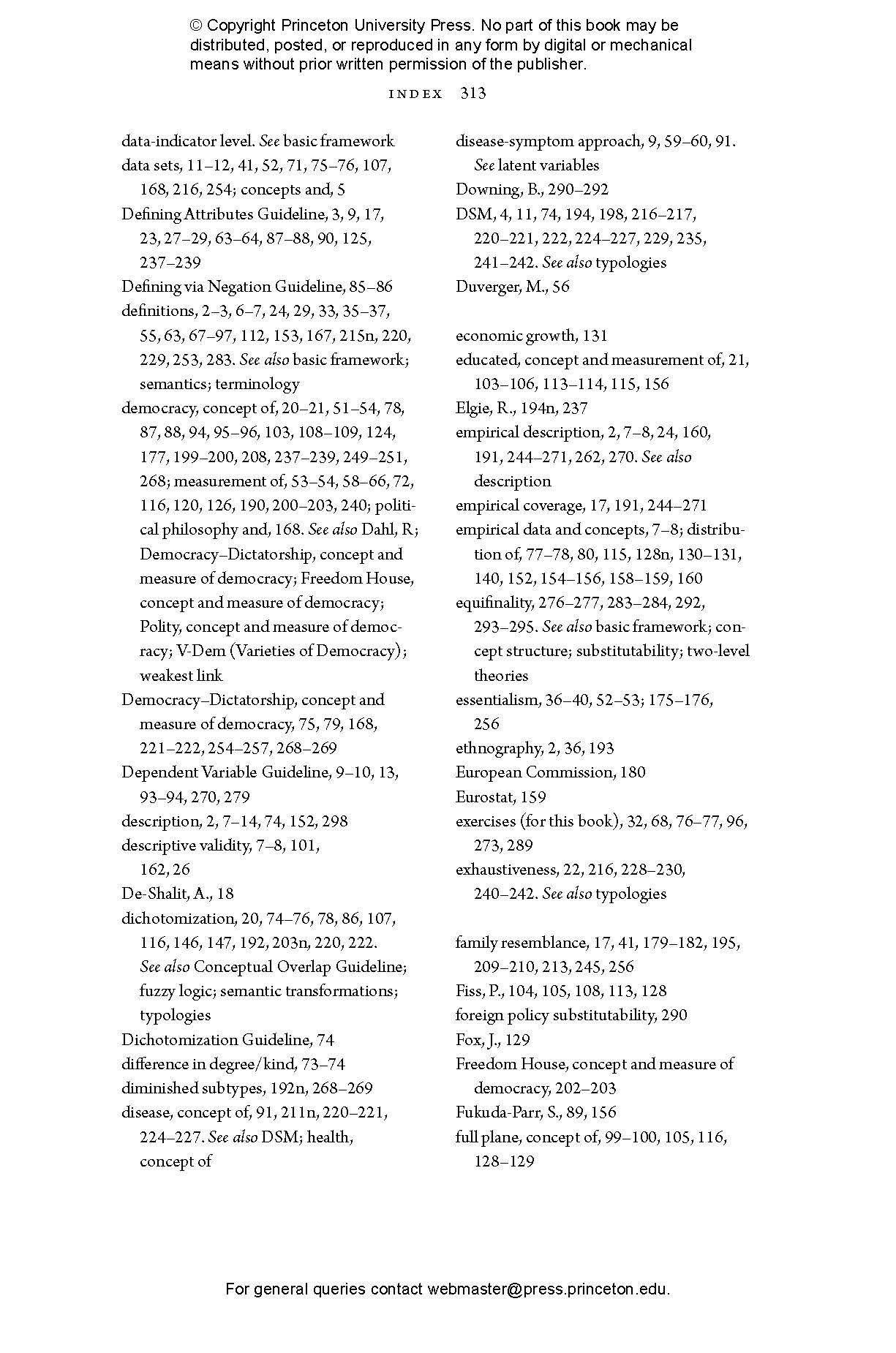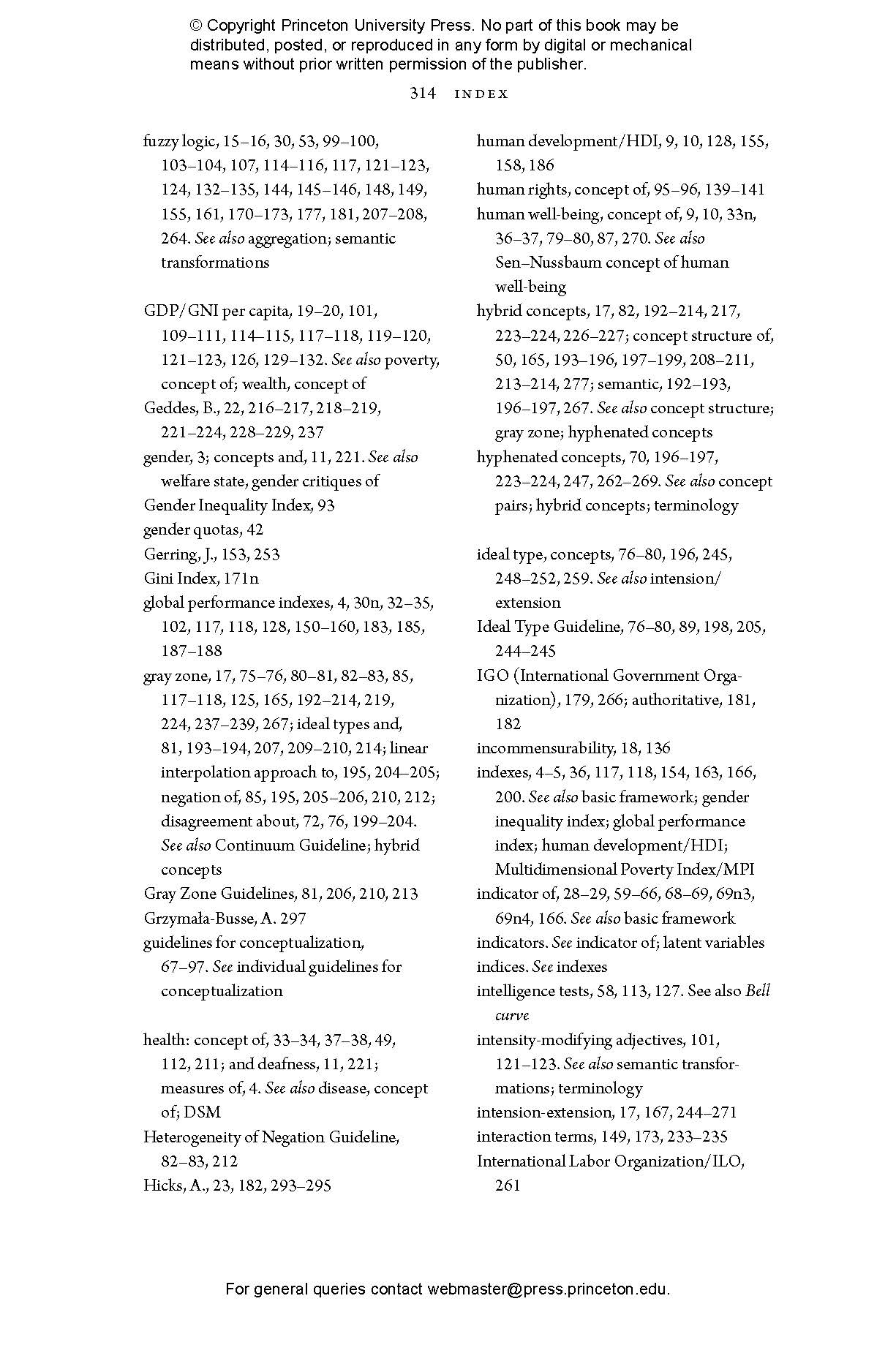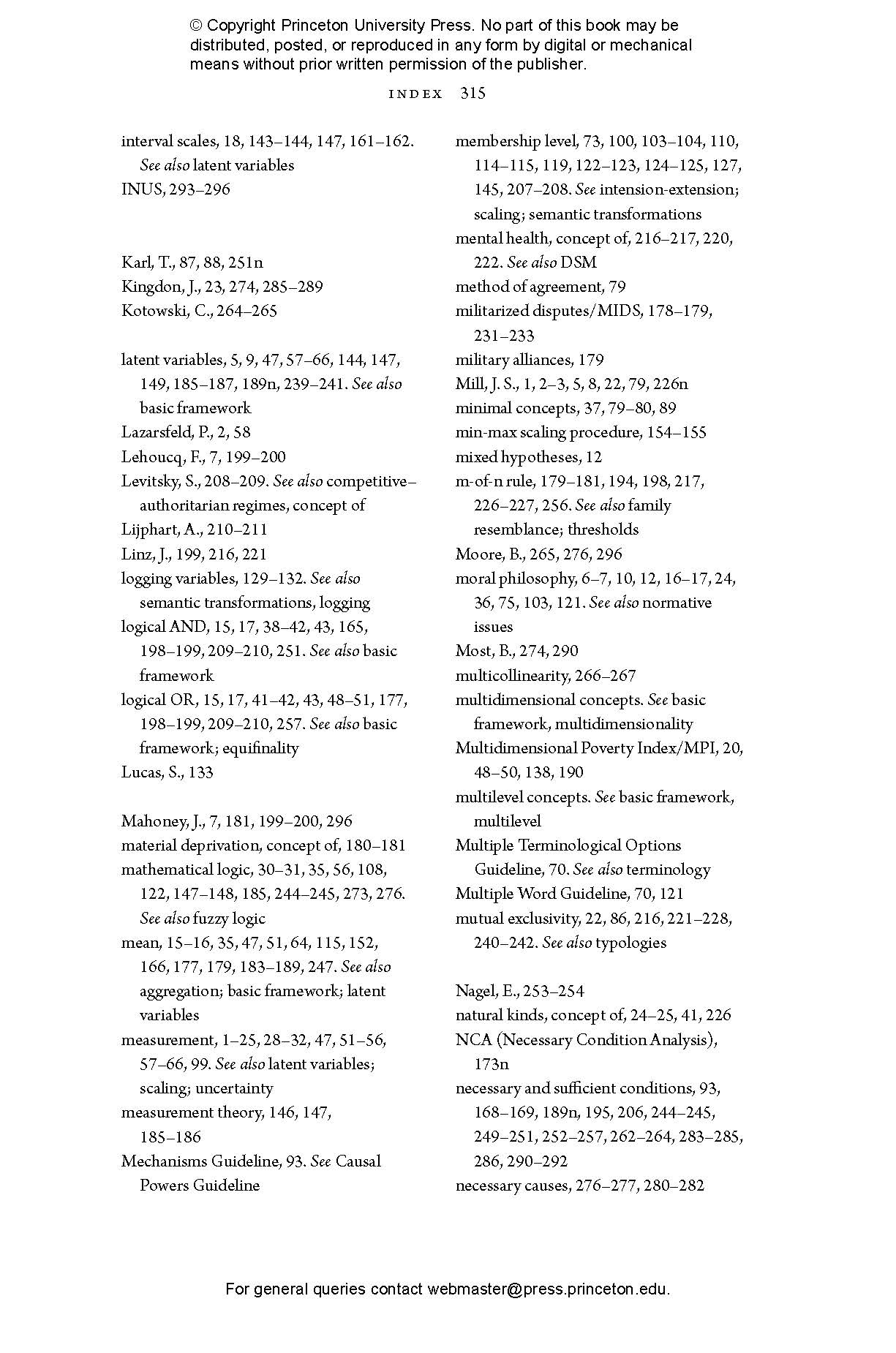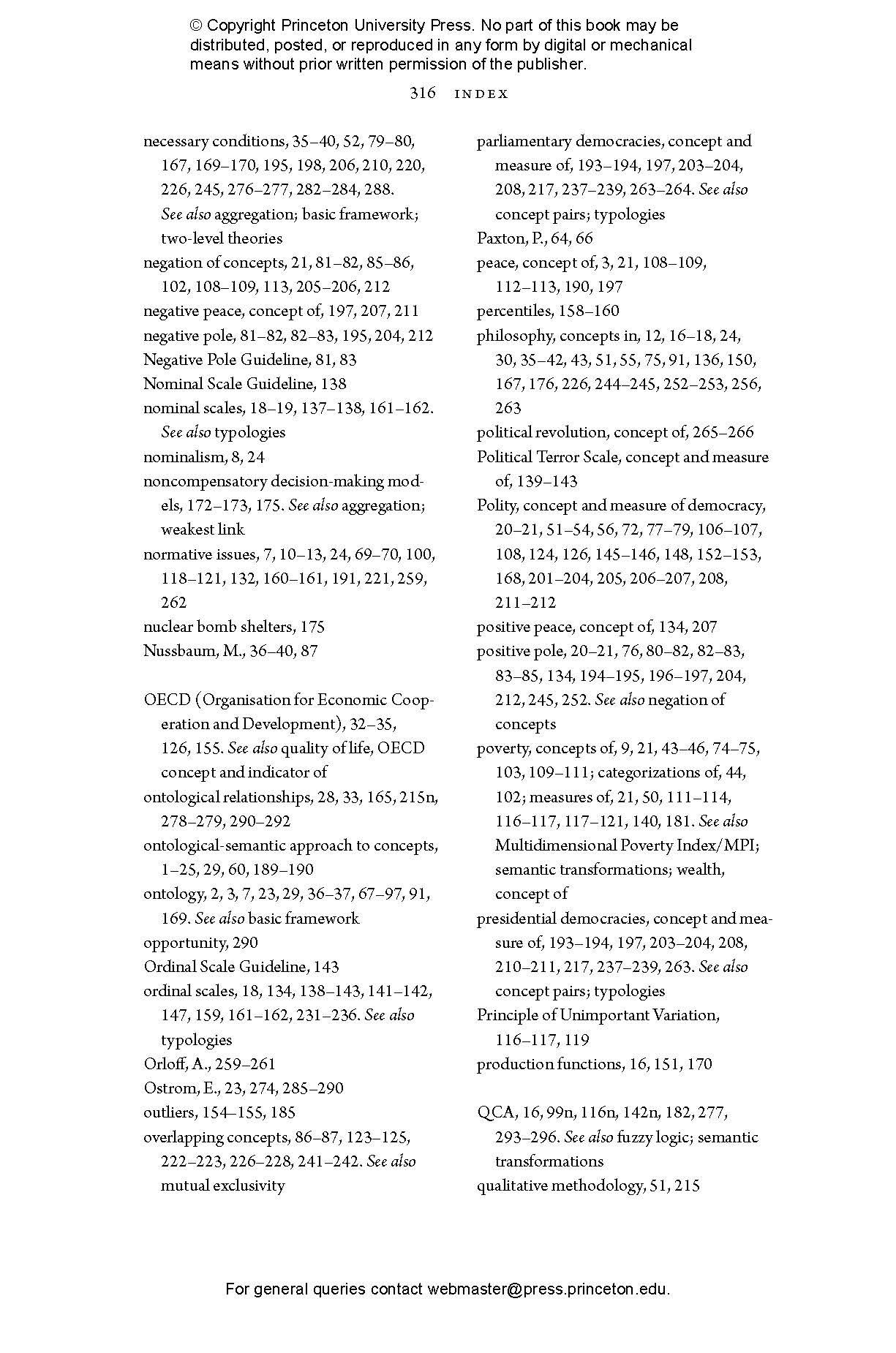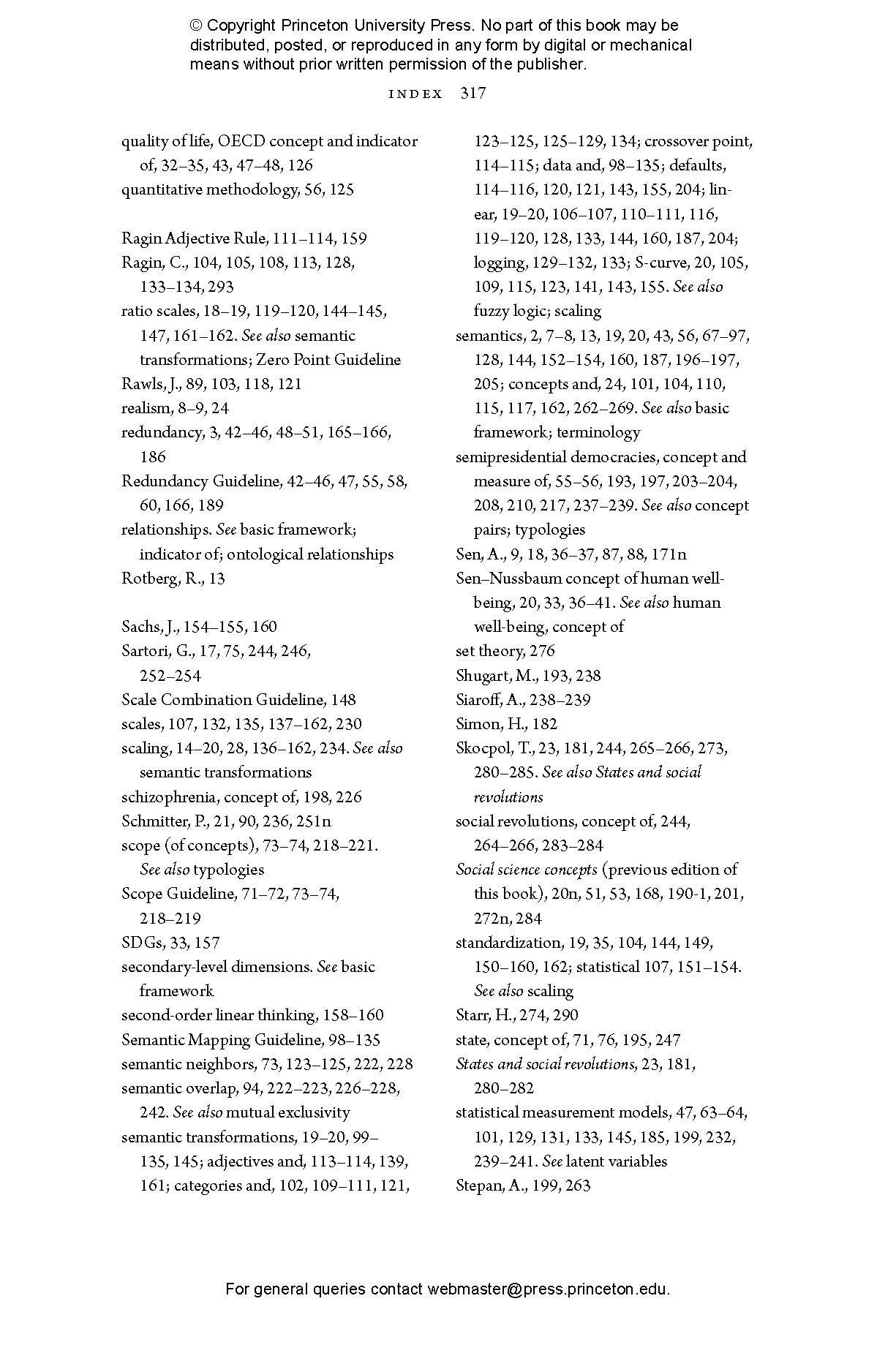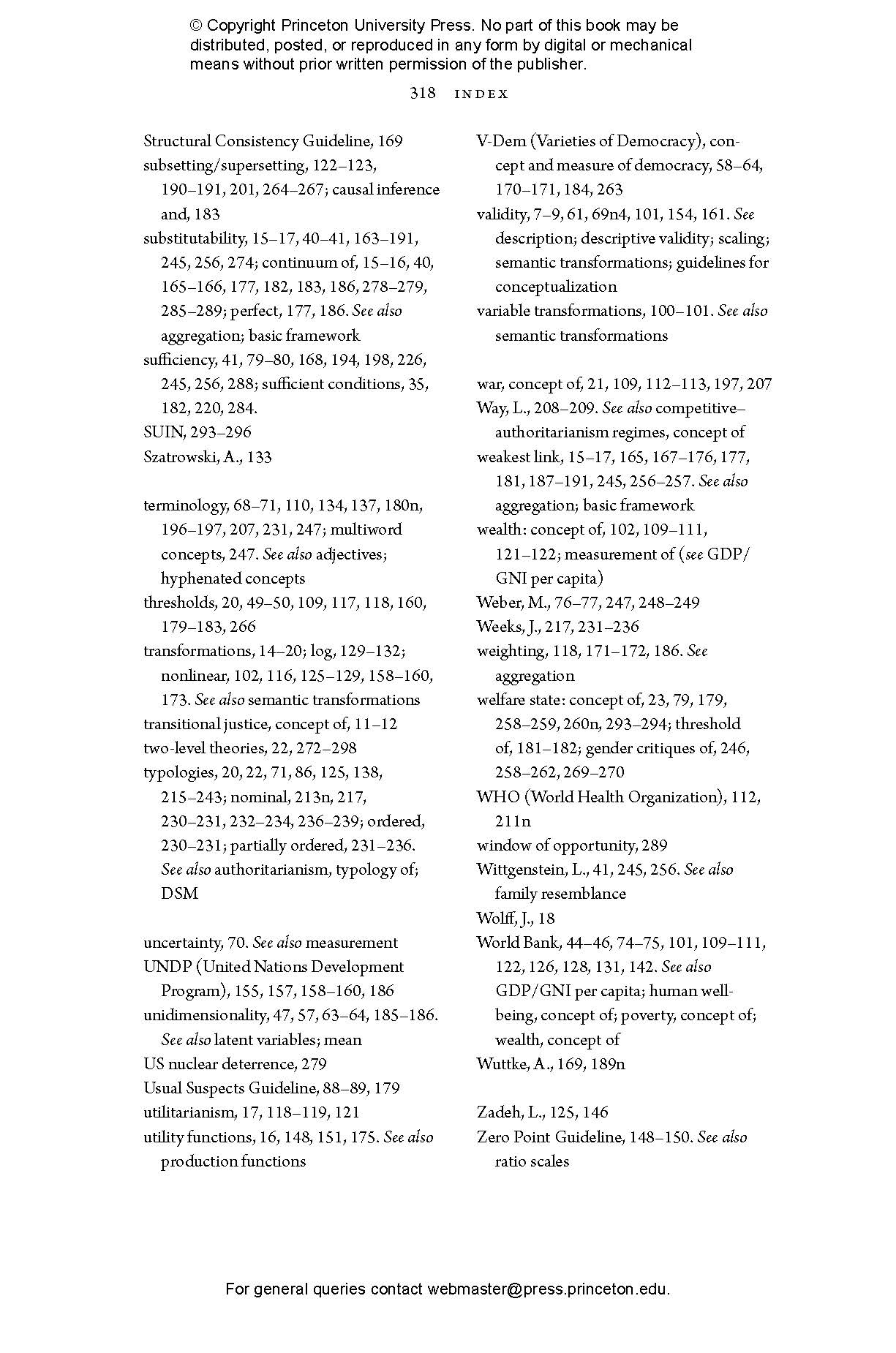Social Science Concepts and Measurement offers an updated look at the theory and methodology of concepts for the social sciences. Emphasizing that most concepts are multilevel and multidimensional, this revised edition continues to bring the qualitative and quantitative closer together, with new chapters devoted to scaling, aggregation, and the methodological links between the semantics of concepts and numeric measures. In addition, it stresses that concepts are used for description and causal inference, and contain normative judgments.
Initial chapters focus on conceptualization, followed by chapters on issues of measurement. The textbook examines concepts in the international arena (such as the global performance indicators used by international organizations like the UN and the World Bank), as well as classic paired concepts such as poverty and wealth, democracy and authoritarianism, and war and peace. Additionally, it explores such topics as typologies, hybrid concepts, and how complex concepts constitute complex theories. The volume serves as a guide to the methodology of concepts in the classroom and is accompanied by more than two hundred exercises. Social Science Concepts and Measurement is an indispensable resource for graduate students and scholars.
Gary Goertz is professor of political science and peace studies at the Kroc Institute for International Peace Studies at the University of Notre Dame. His many methods books include A Tale of Two Cultures and Multimethod Research, Causal Mechanisms, and Case Studies (both Princeton).
- List of Tables
- List of Figures
- Preface
- 1 Introduction: An Ontological-Semantic Approach to Conceptualization and Measurement
- 2 The Basic Framework for Conceptualization and Measurement
- 3 Guidelines for Creating Concepts: Ontology, Semantics, and Definitions
- 4 Mapping Meaning: Linking Concepts with Data鈥揑ndicators
- 5 Scaling
- 6 Concept Structure: Aggregation and Substitutability
- 7 Gray Zone and Hybrid Concepts
- 8 Typologies
- 9 Intension鈥揈xtension: Concept Structure and Empirical Description
- 10 Two-Level Theories: Complex Concepts in Complex Causal Theories
- References
- Index
"Gary Goertz鈥檚 book on concepts is a classic in social science鈥攙ery careful, extremely useful, and analytical in the best sense of the word. To now have an improved, updated edition is a treat. Social Science Concepts and Measurement represents a step forward for the field."鈥擱ichard Swedberg, Cornell University
"At a time when data is proliferating and increasingly used to exert policy influence, Gary Goertz鈥檚 rigorous discussion of concept and measurement challenges anyone who labors under the misapprehension that their analysis is purely quantitative and strictly logical. Goertz calls for the closer scrutiny of qualitative and normative reasoning underlying all inference, causal as well as descriptive."鈥擩udith Kelley, Duke University
"At a time when much of social science research remains mired in narrow methodological debates about measurement and causality, Social Science Concepts and Measurement reminds us of the vital antecedent efforts needed to better understand the implications and limits of our choice of concepts. This classic book, now completely updated, shows researchers how to be vastly more careful in their work and, in particular, the claims they derive from it."鈥擬ichael Woolcock, World Bank and Harvard University
"Gary Goertz is at the forefront of a number of important methodological debates. He is one of the very few scholars who regularly crosses the boundary between quants and quals, and this book reflects his strength in both areas."鈥擩ohn Gerring, University of Texas, Austin
"One of the greatest challenges facing the social sciences today is the task of cultivating a closer connection between theoretical concepts and empirical analysis. In this book, Gary Goertz lays the foundation for a new approach to social scientific concepts and demonstrates the many benefits that follow from the thoughtful articulation of concepts in social research."鈥擟harles Ragin, author of The Comparative Method
. Exercises will be updated annually. For more information, contact ggoertz@nd.edu.
